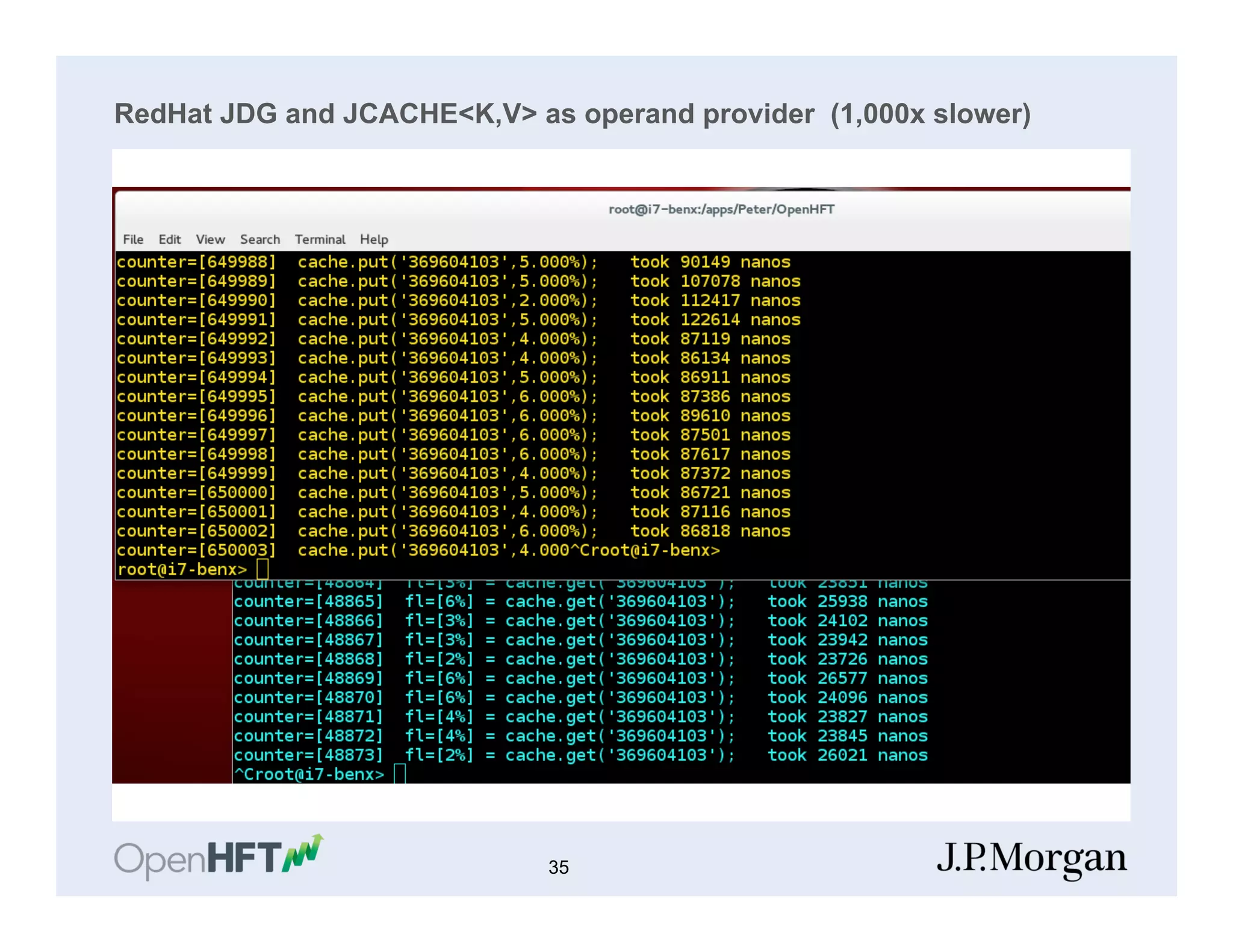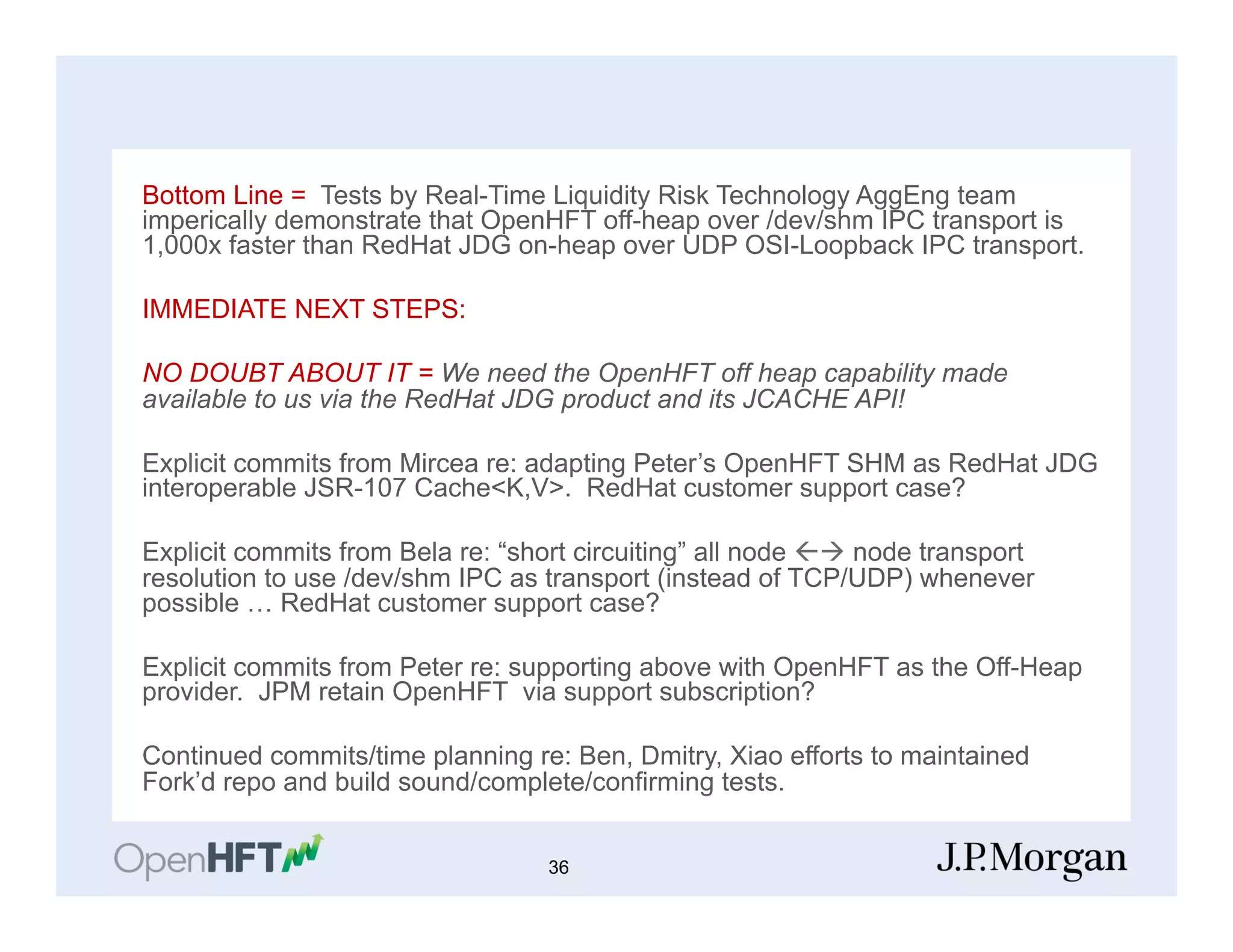- OpenHFT provides solutions for improving Java data locality and inter-process communication (IPC) transport, enabling ultra-low latency real-time Java deployments.
- It includes Chronicle Map, an off-heap concurrent map that avoids garbage collection pauses compared to on-heap maps. It also provides faster IPC than UDP/TCP via shared memory.
- Tests show Chronicle Map accessed via shared memory IPC can be over 1000x faster than Red Hat Infinispan accessed via UDP for a distributed cache workload.
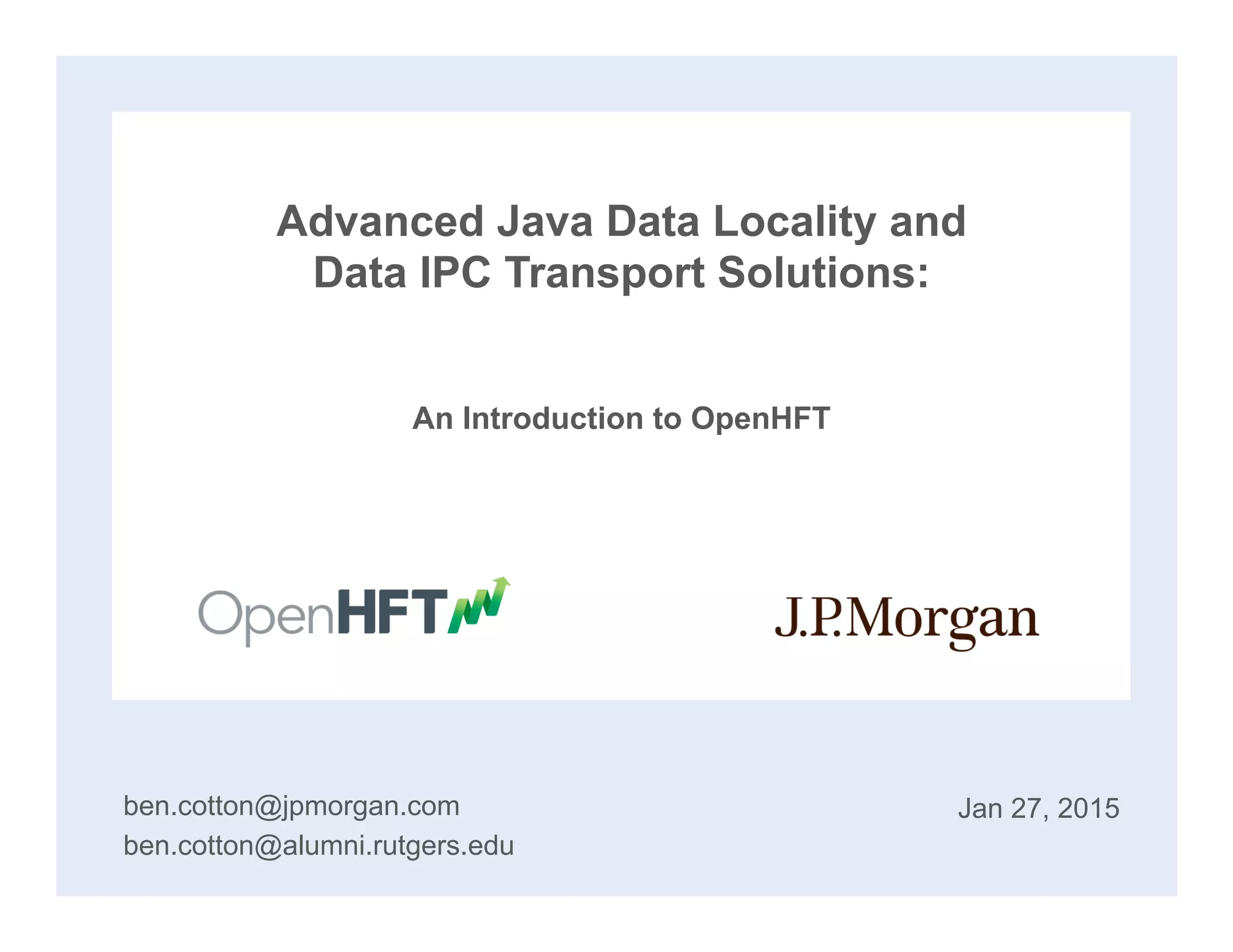
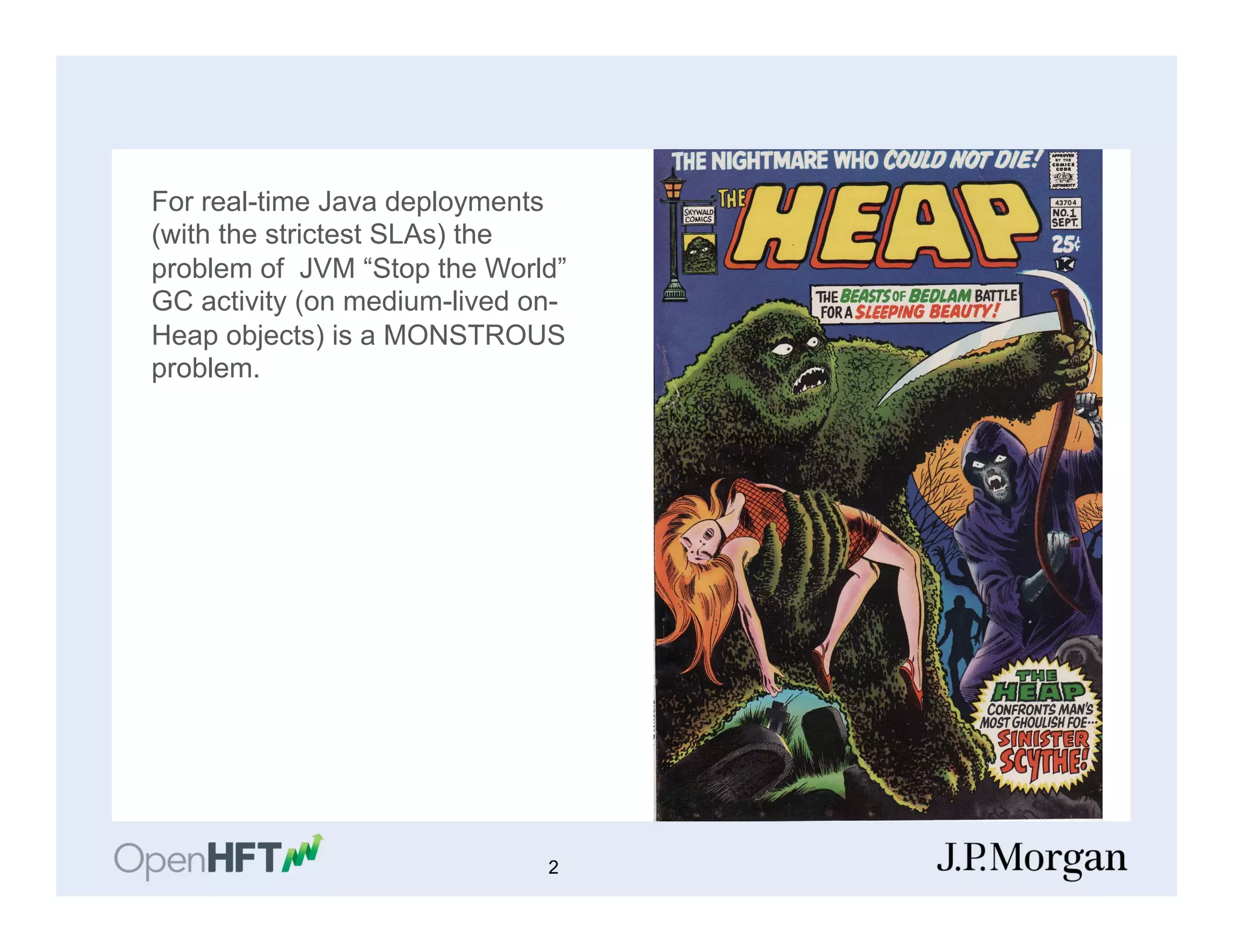
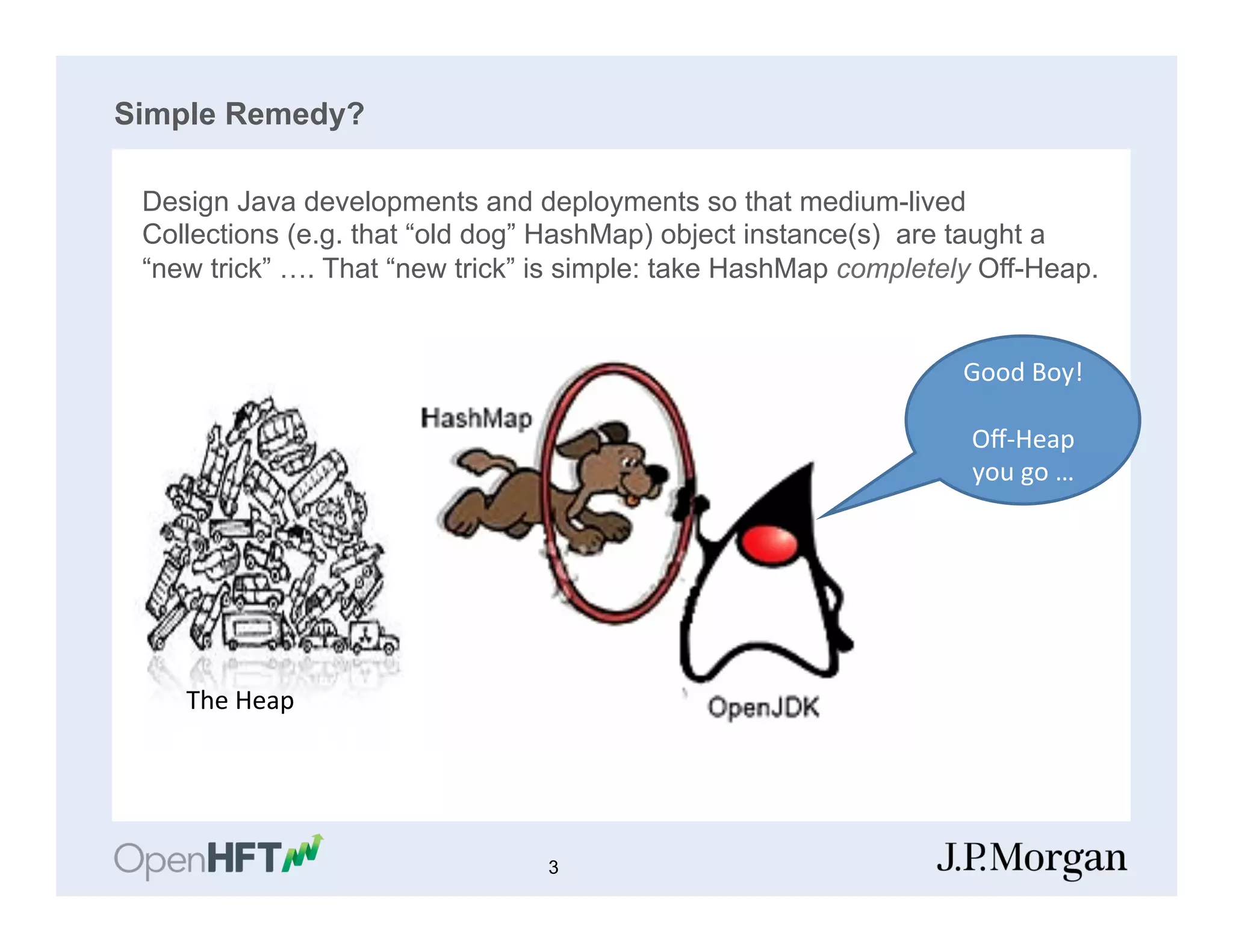
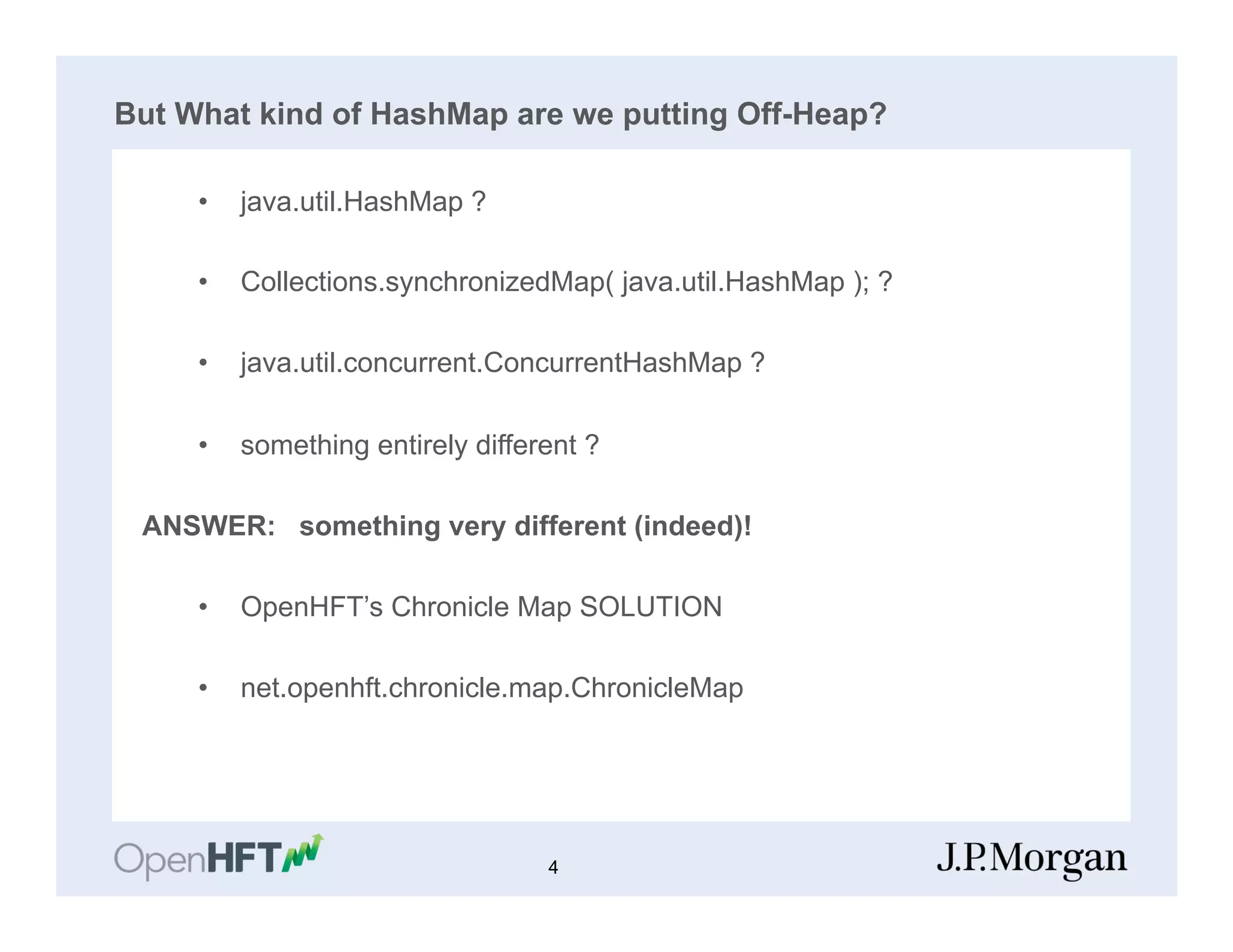
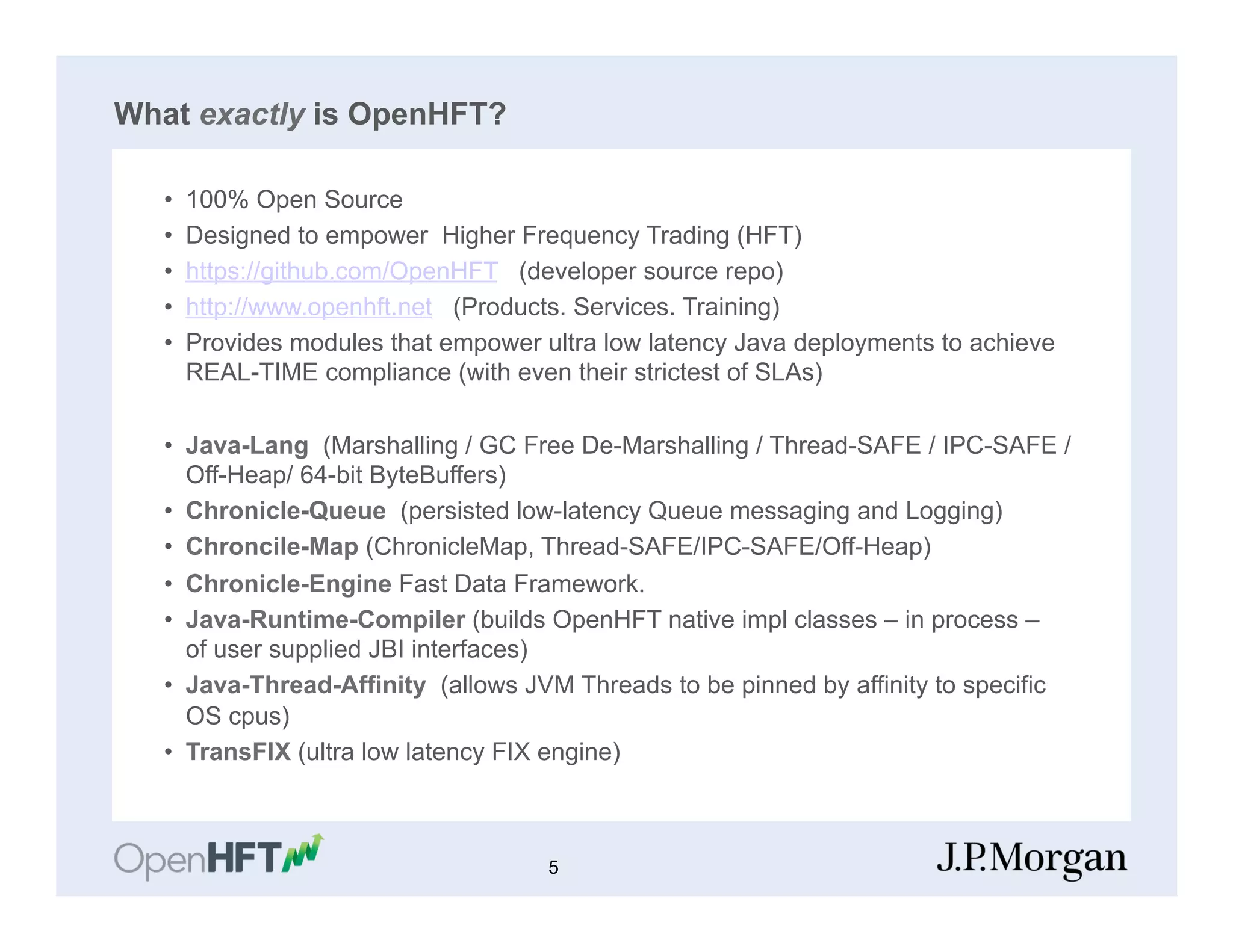
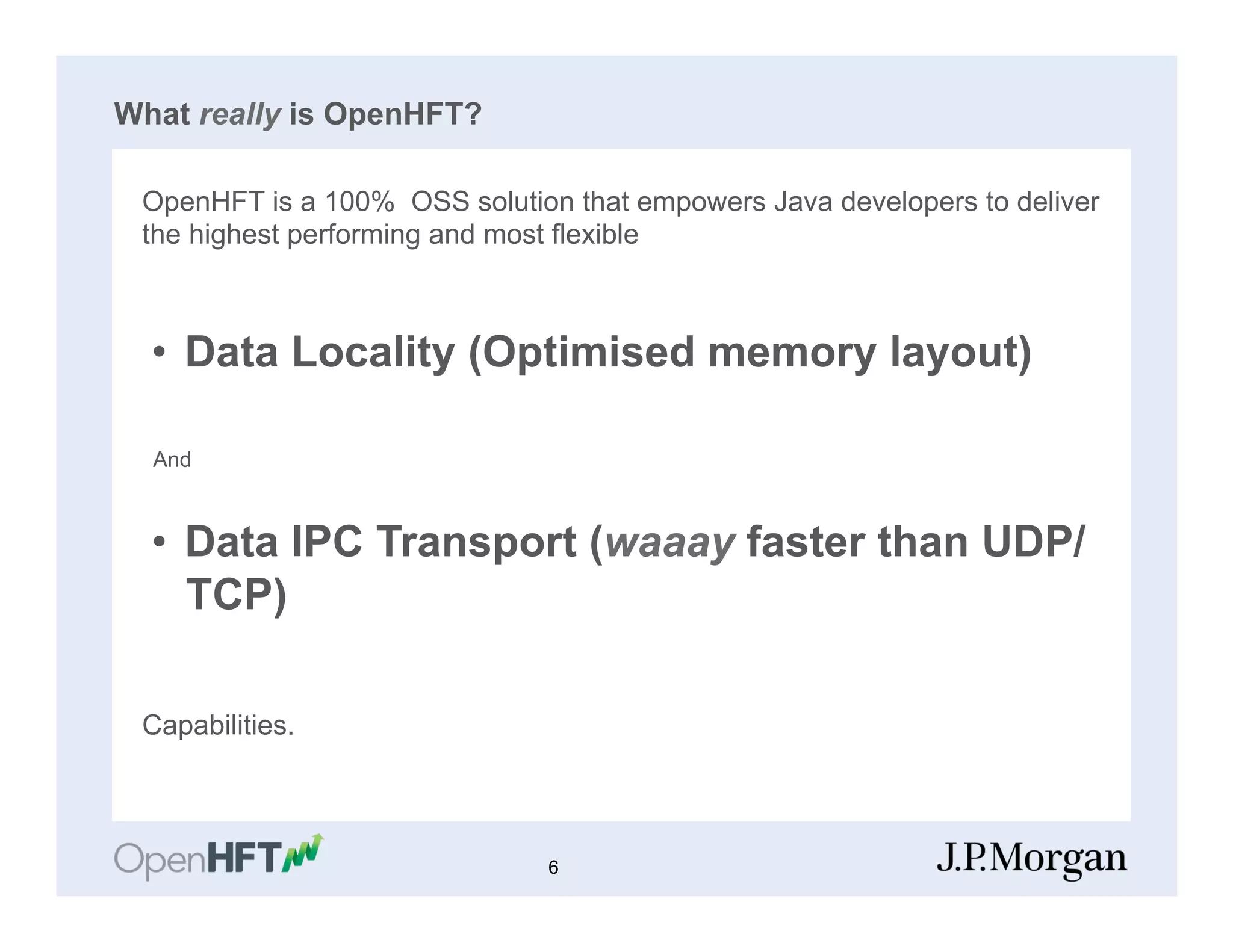
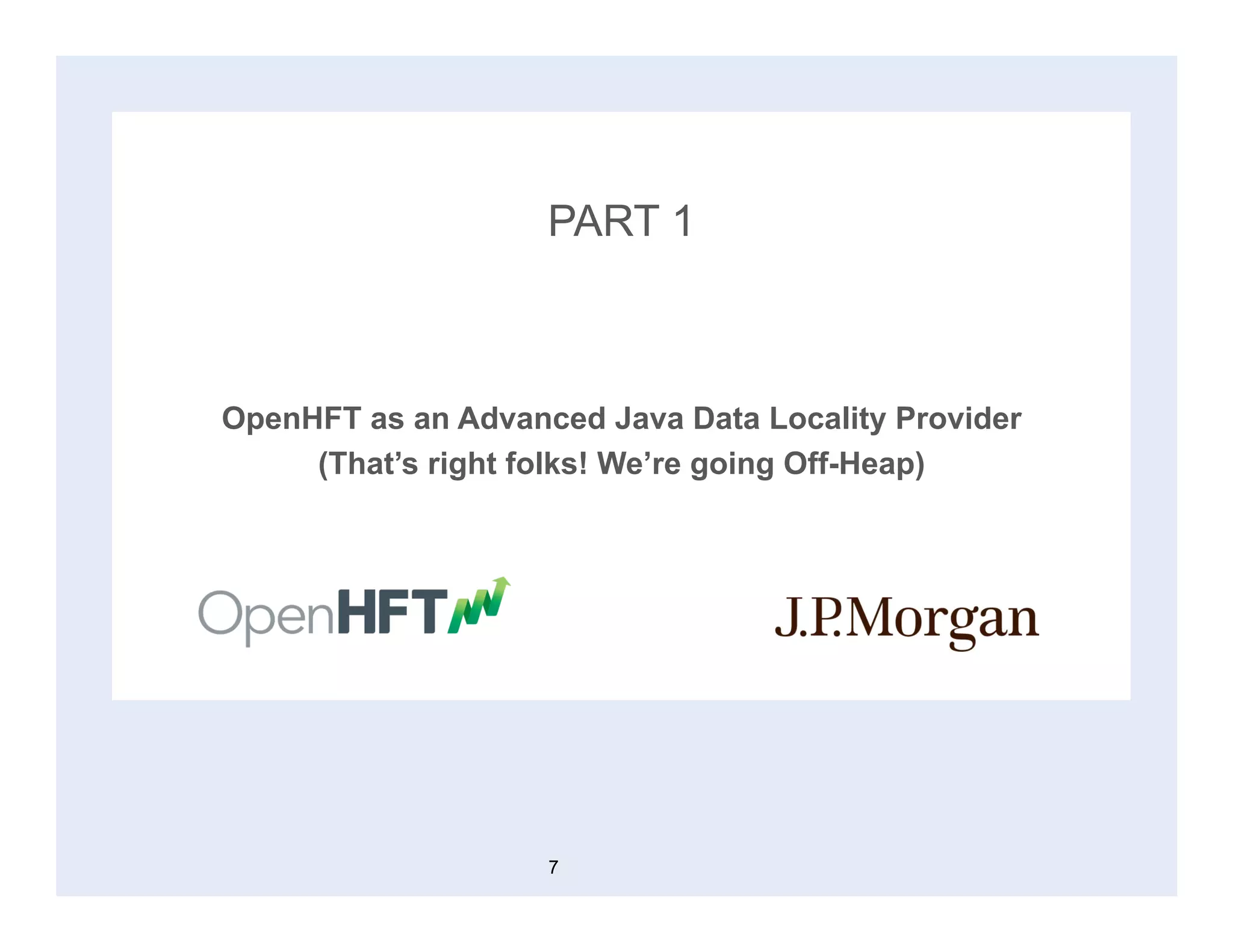
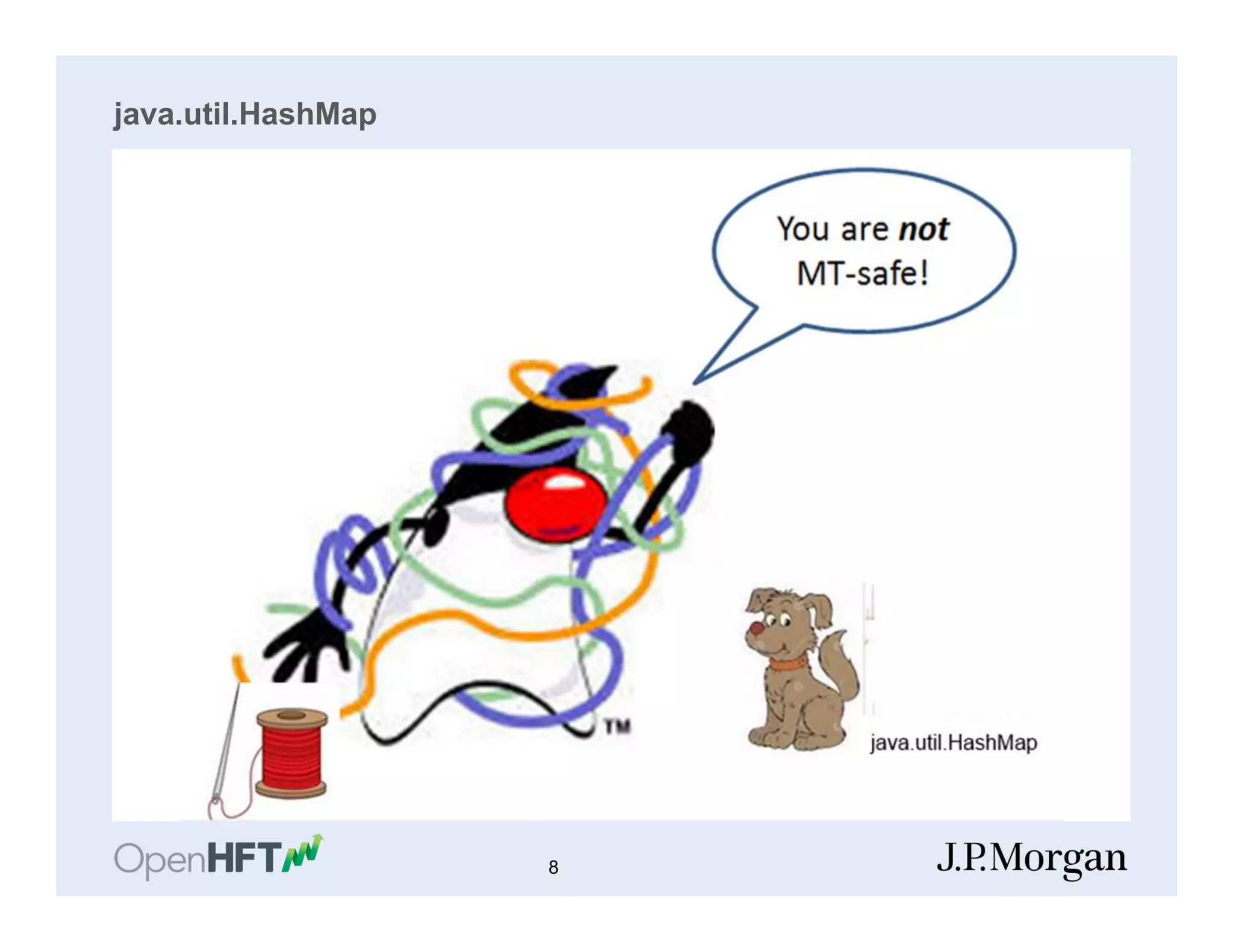
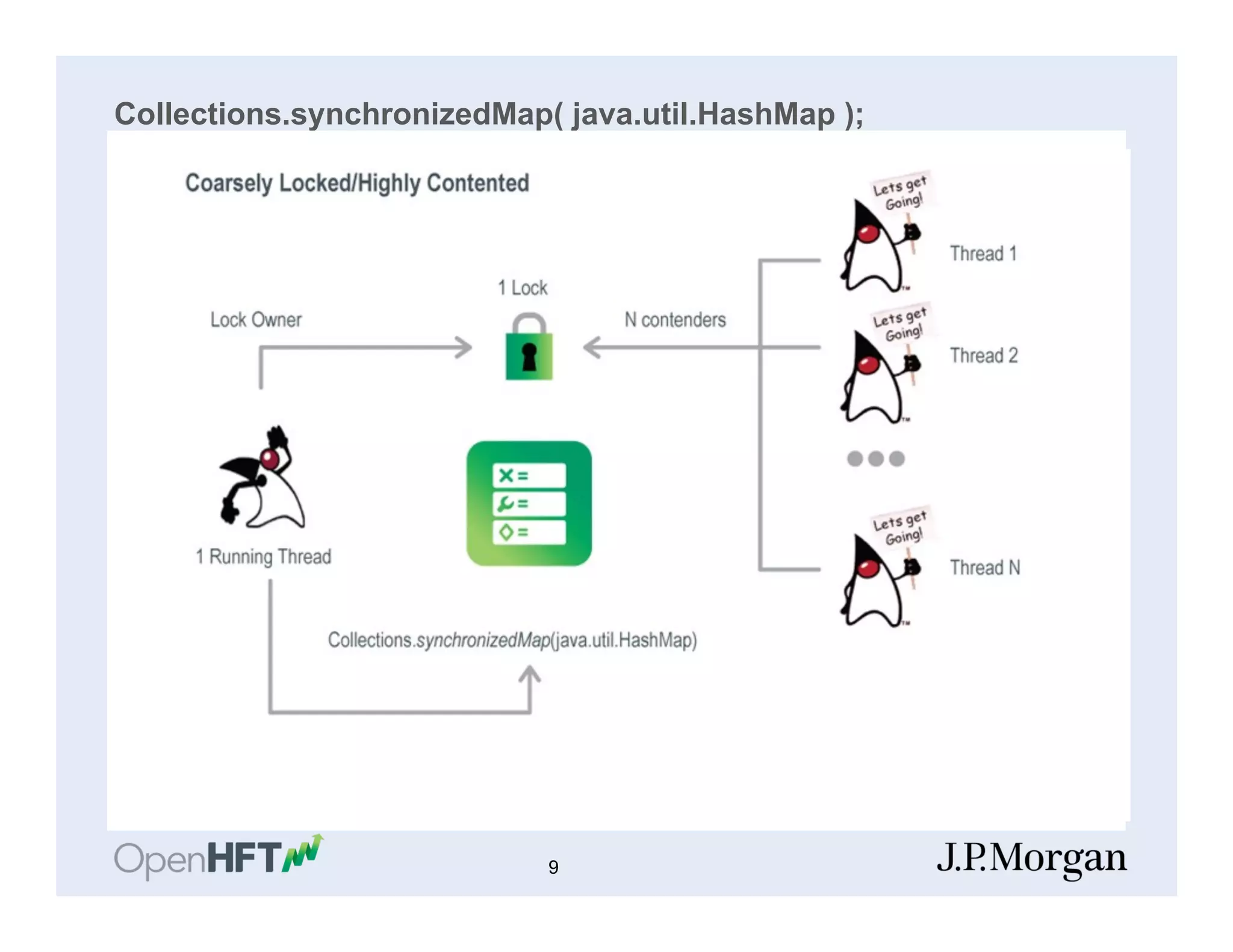
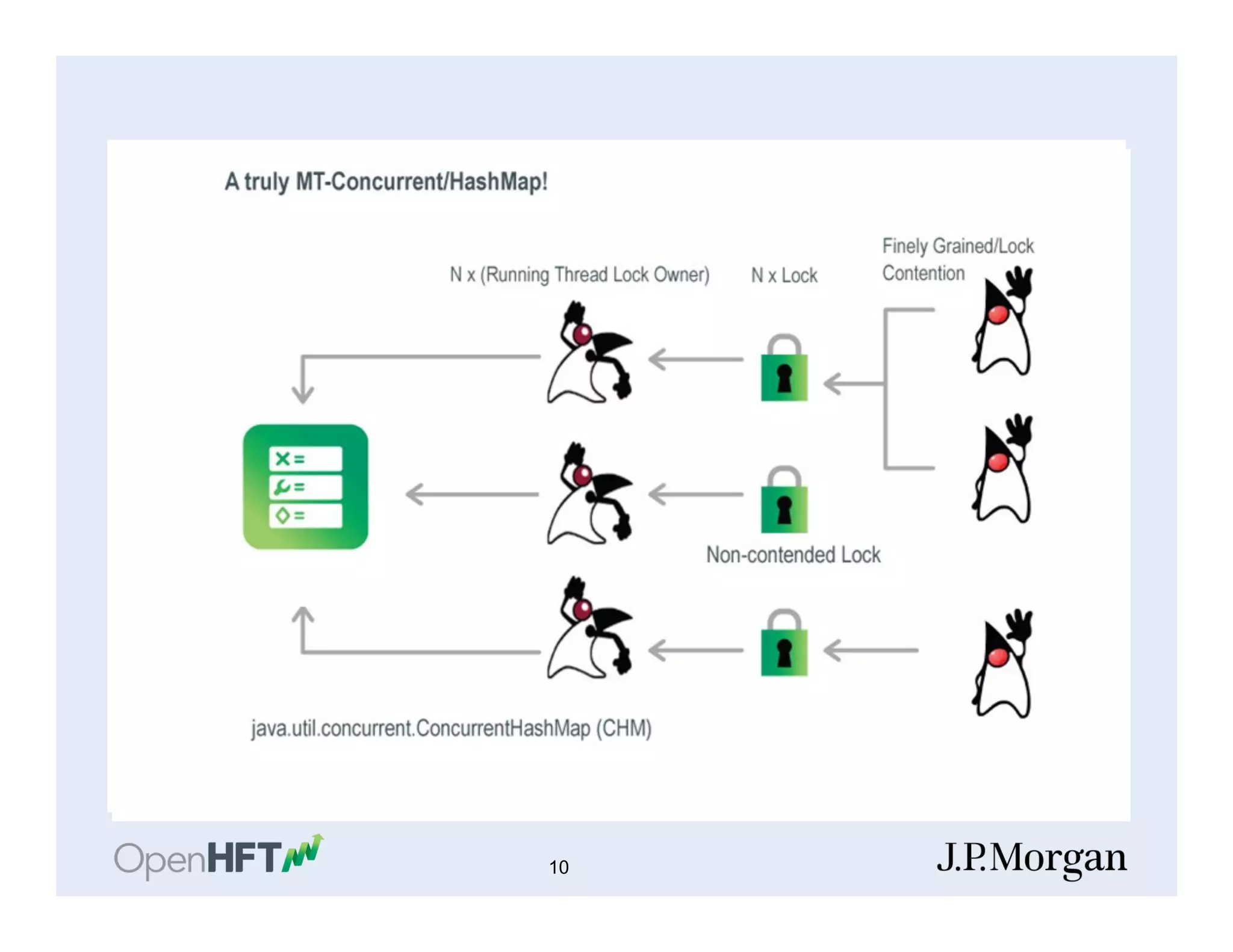
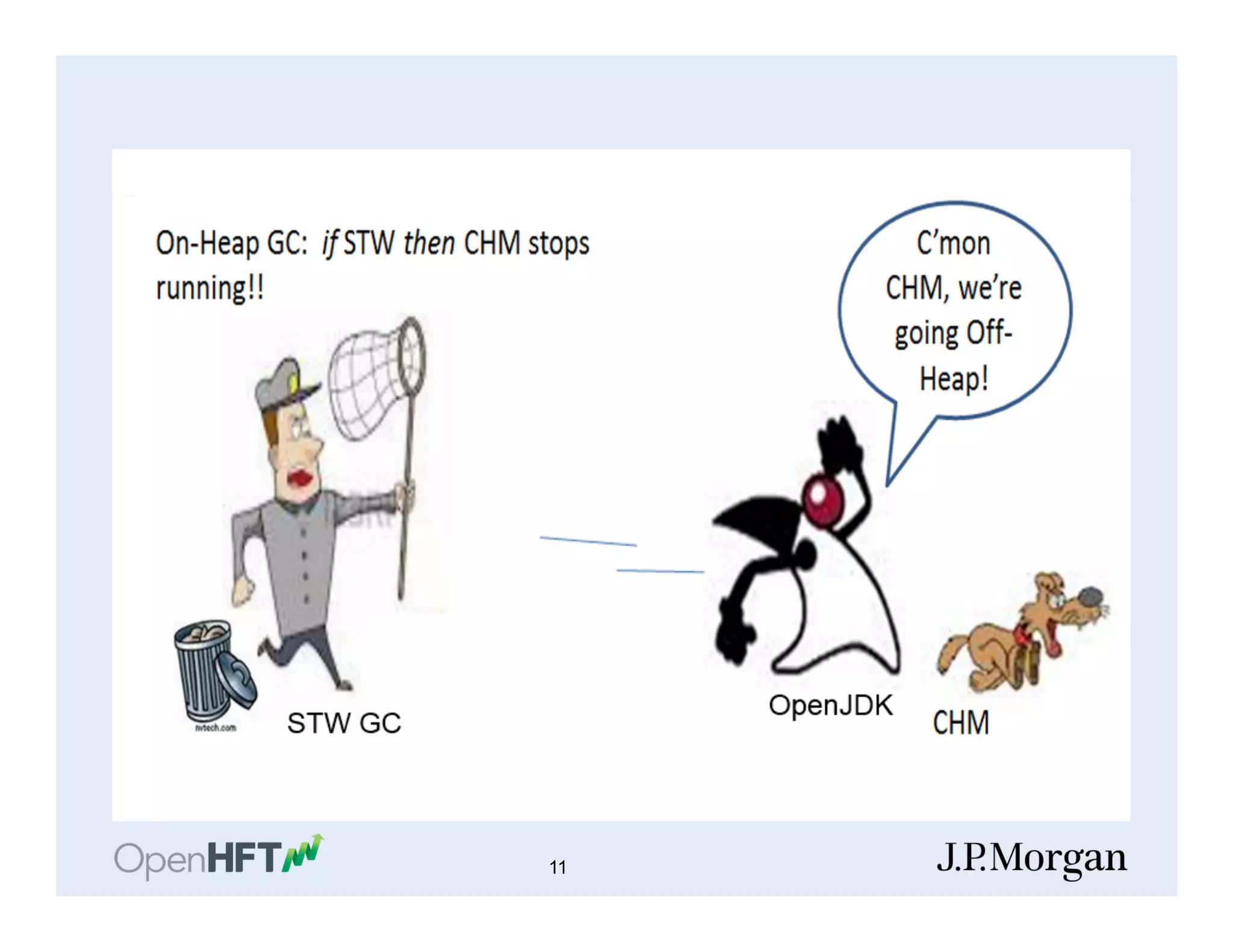
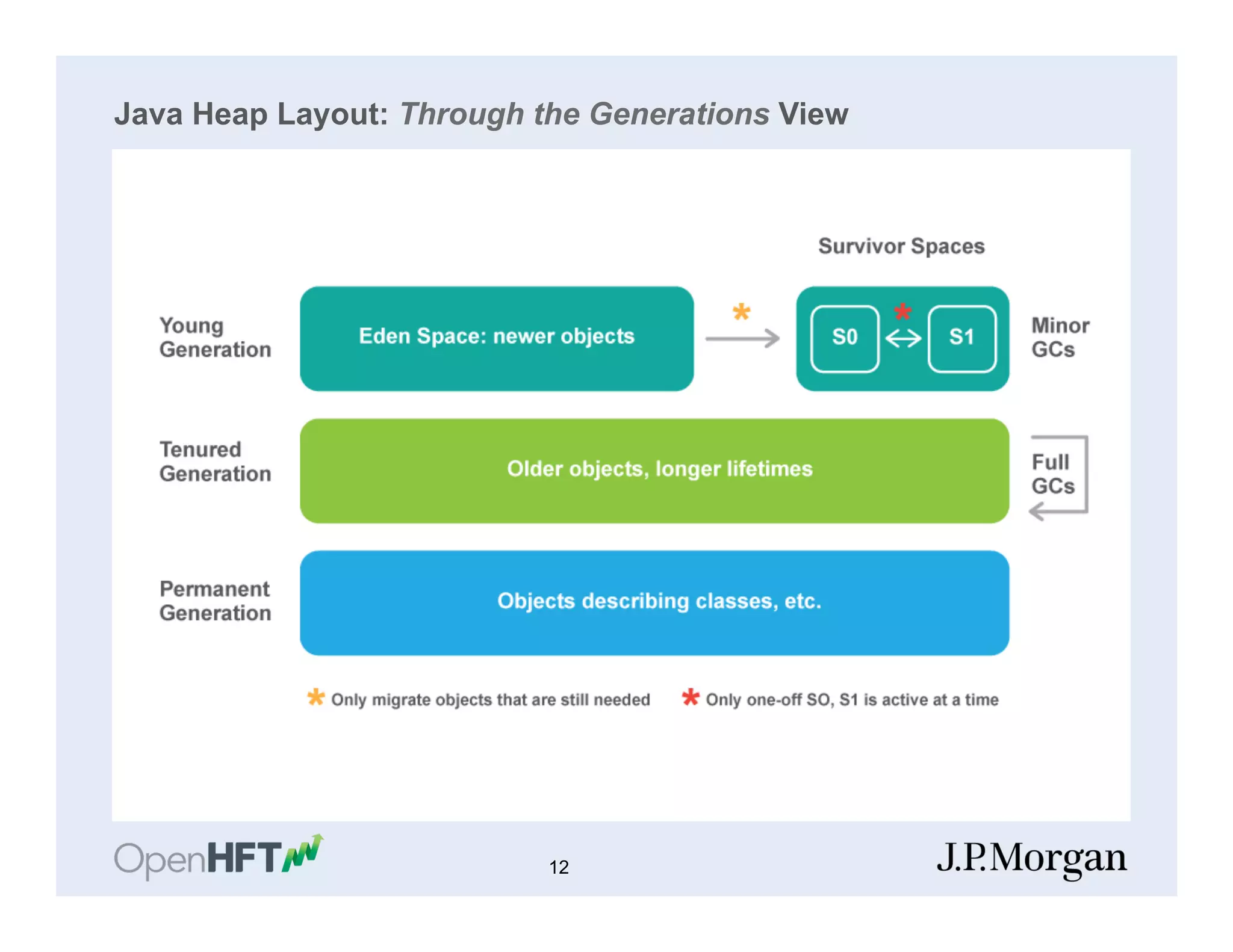
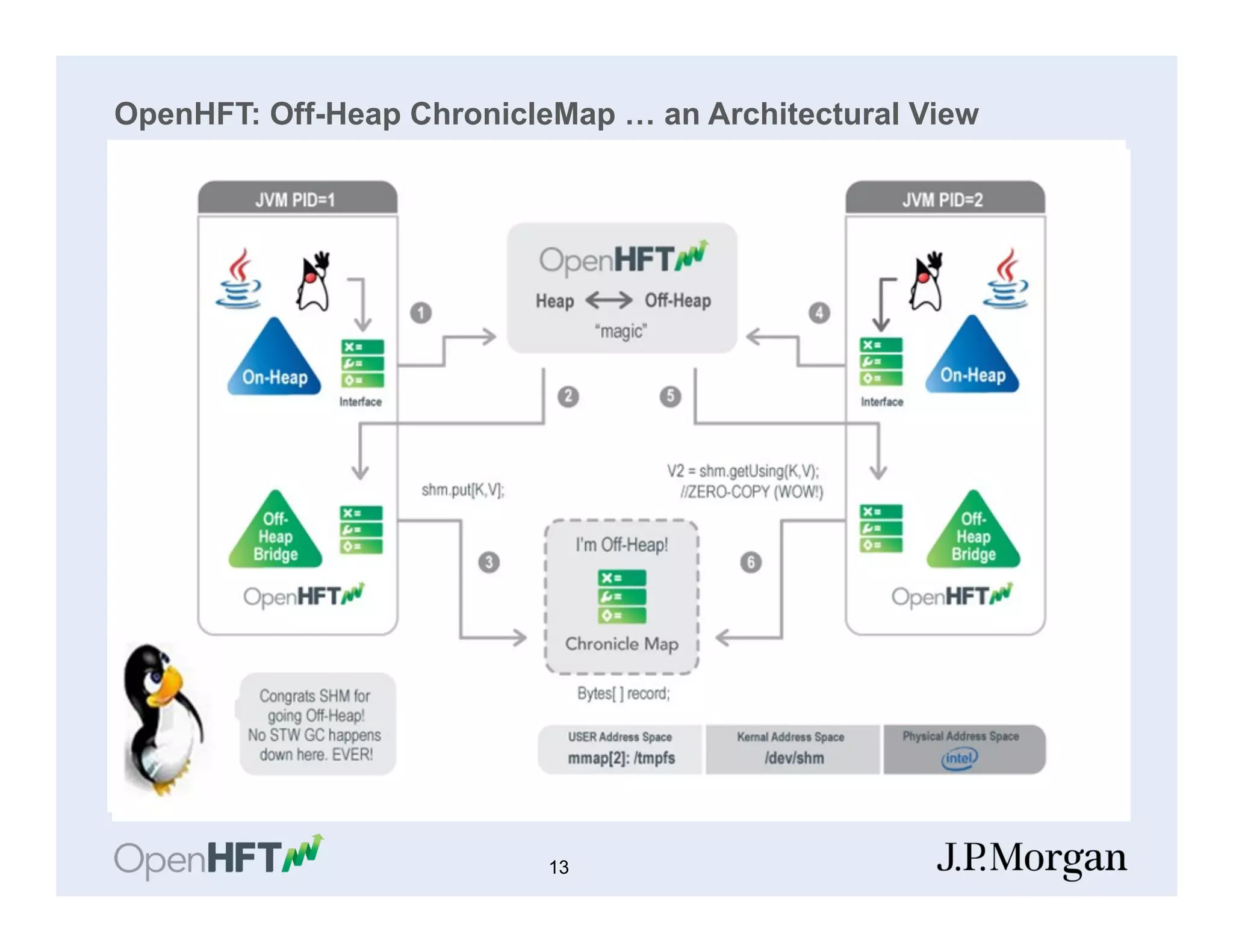

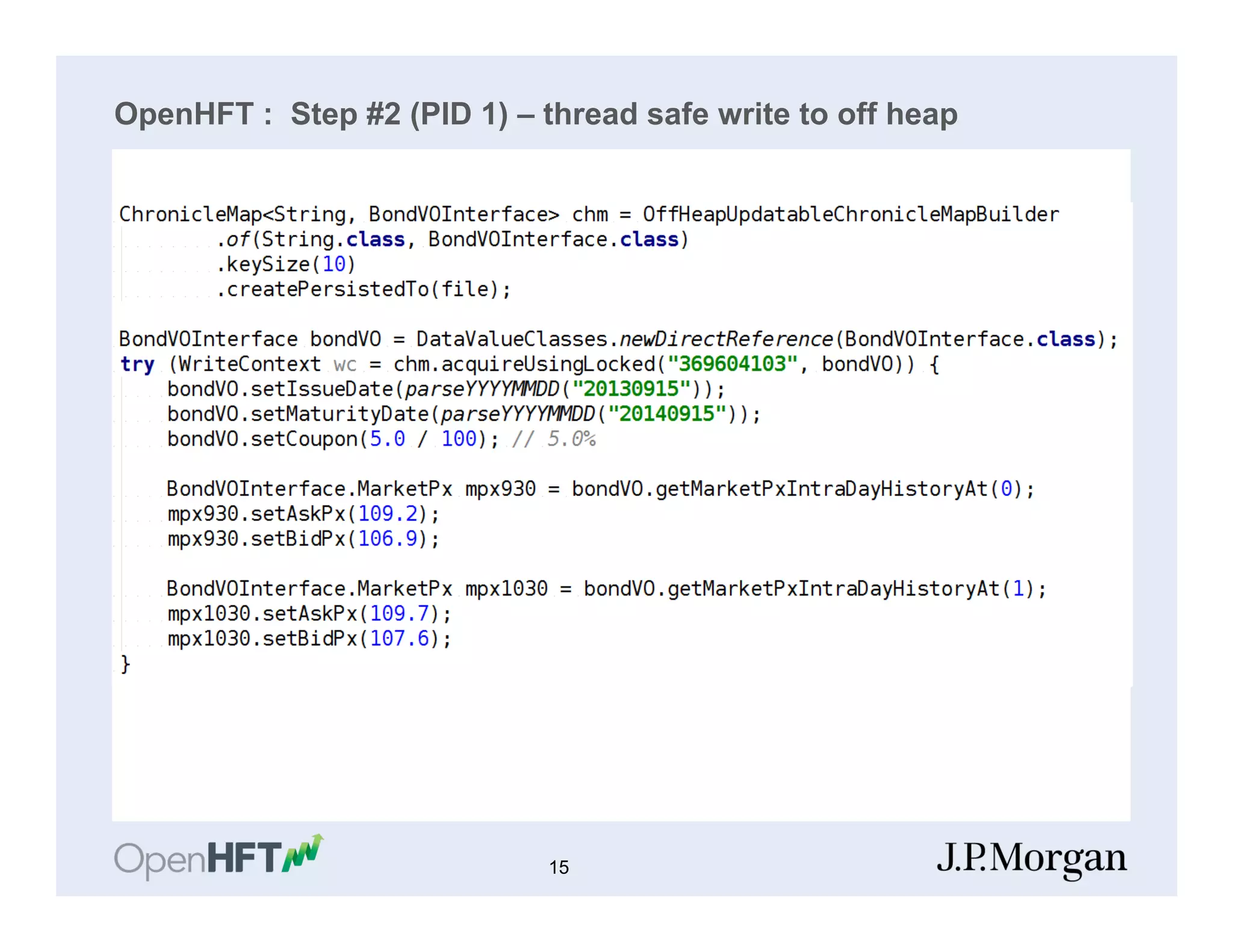
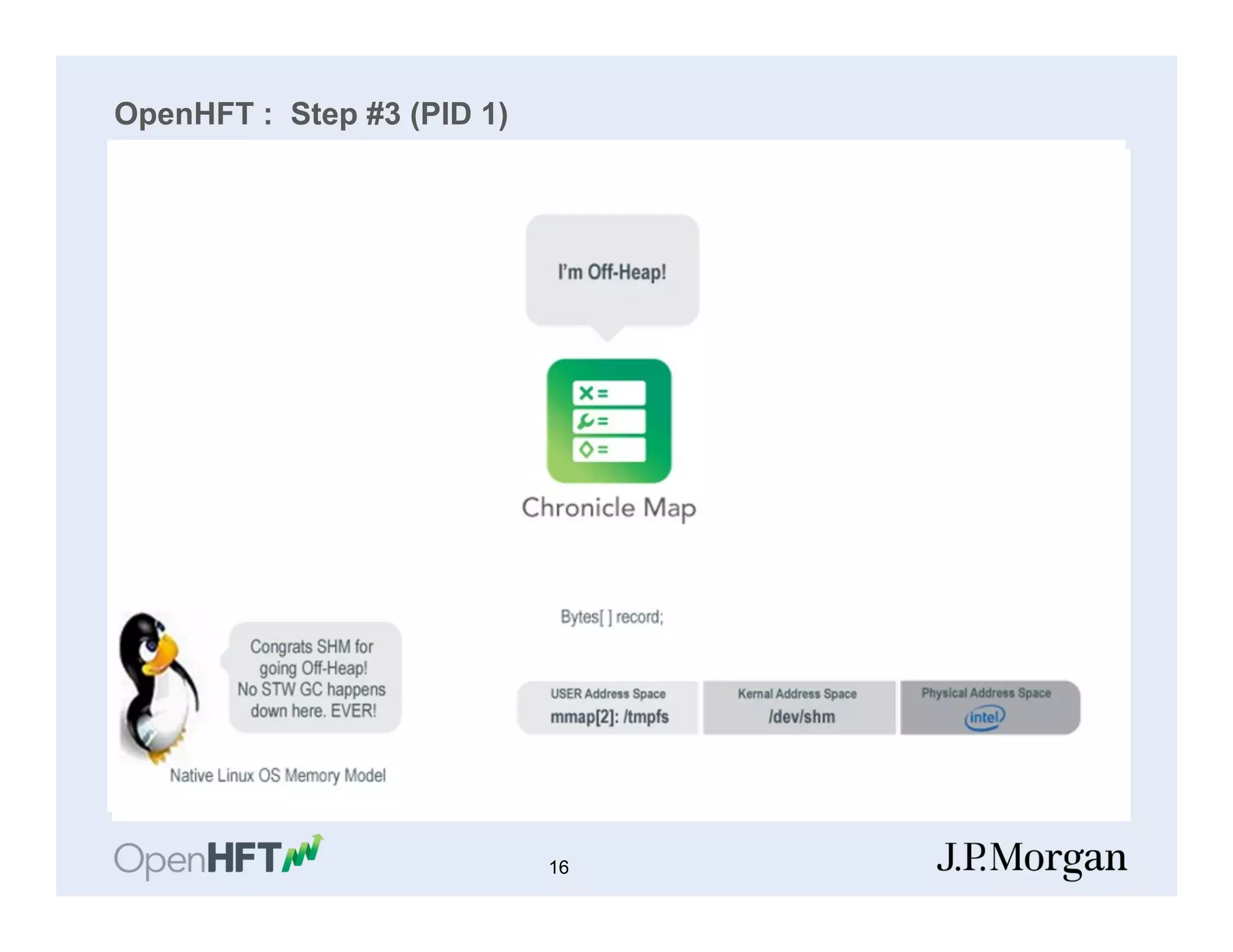
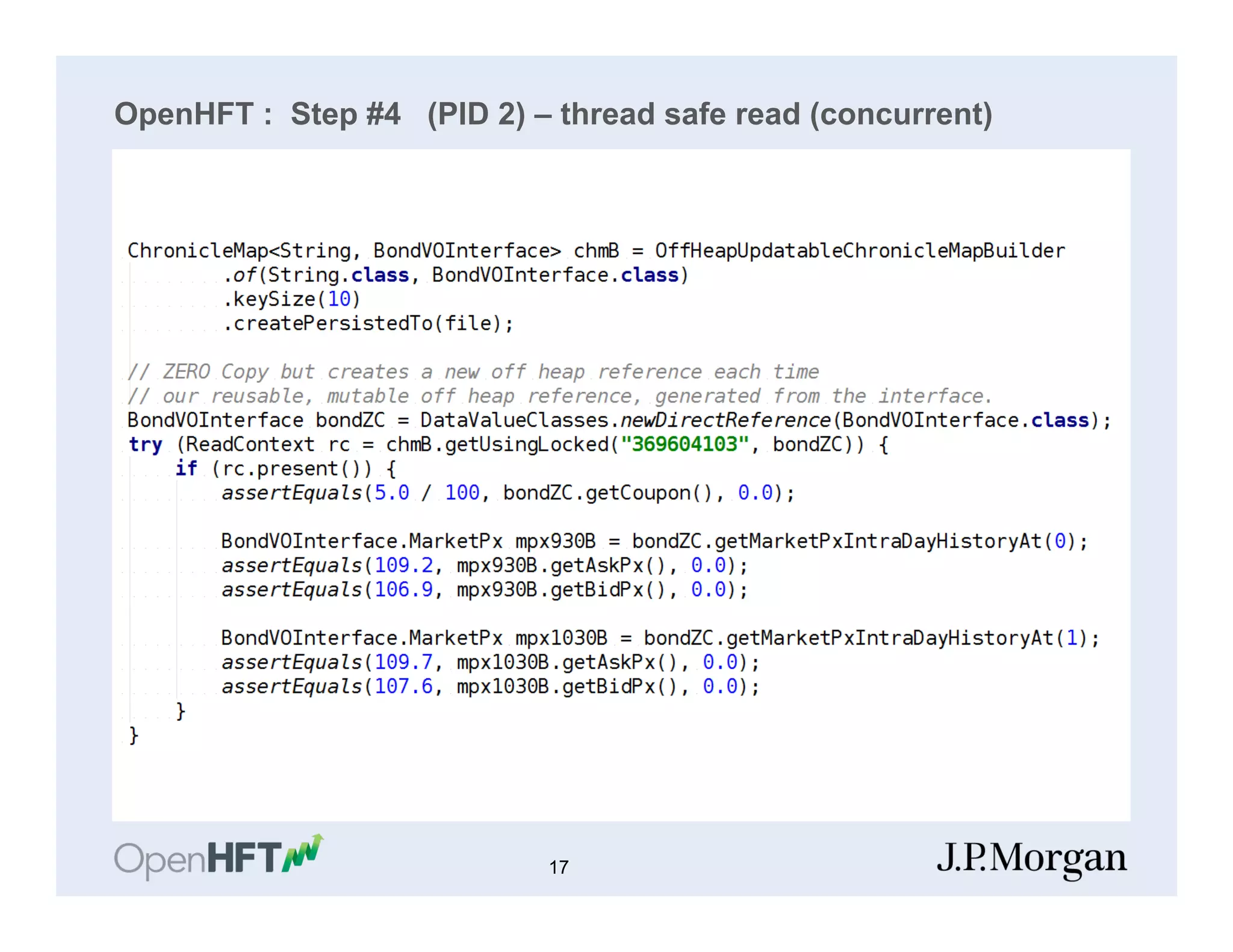
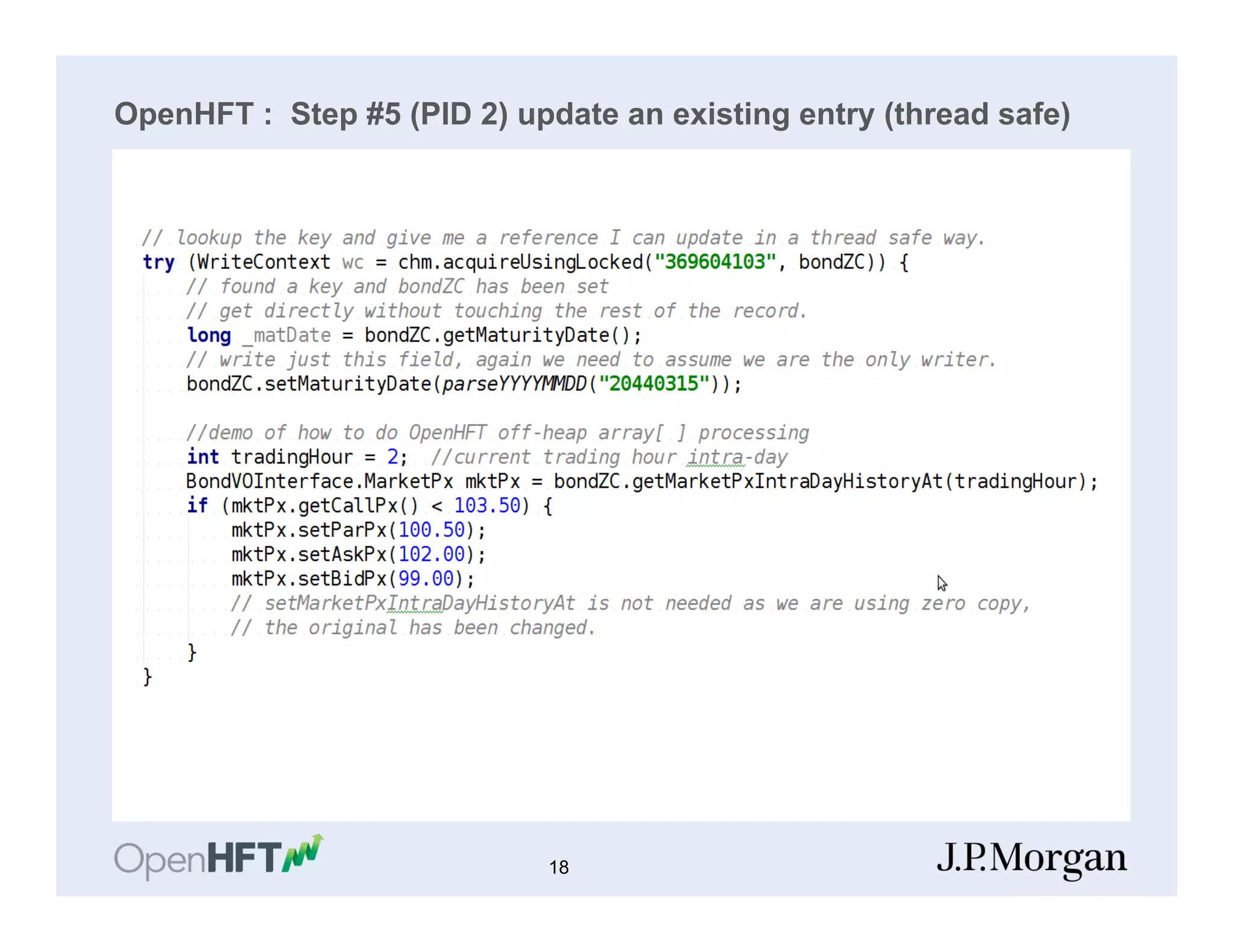

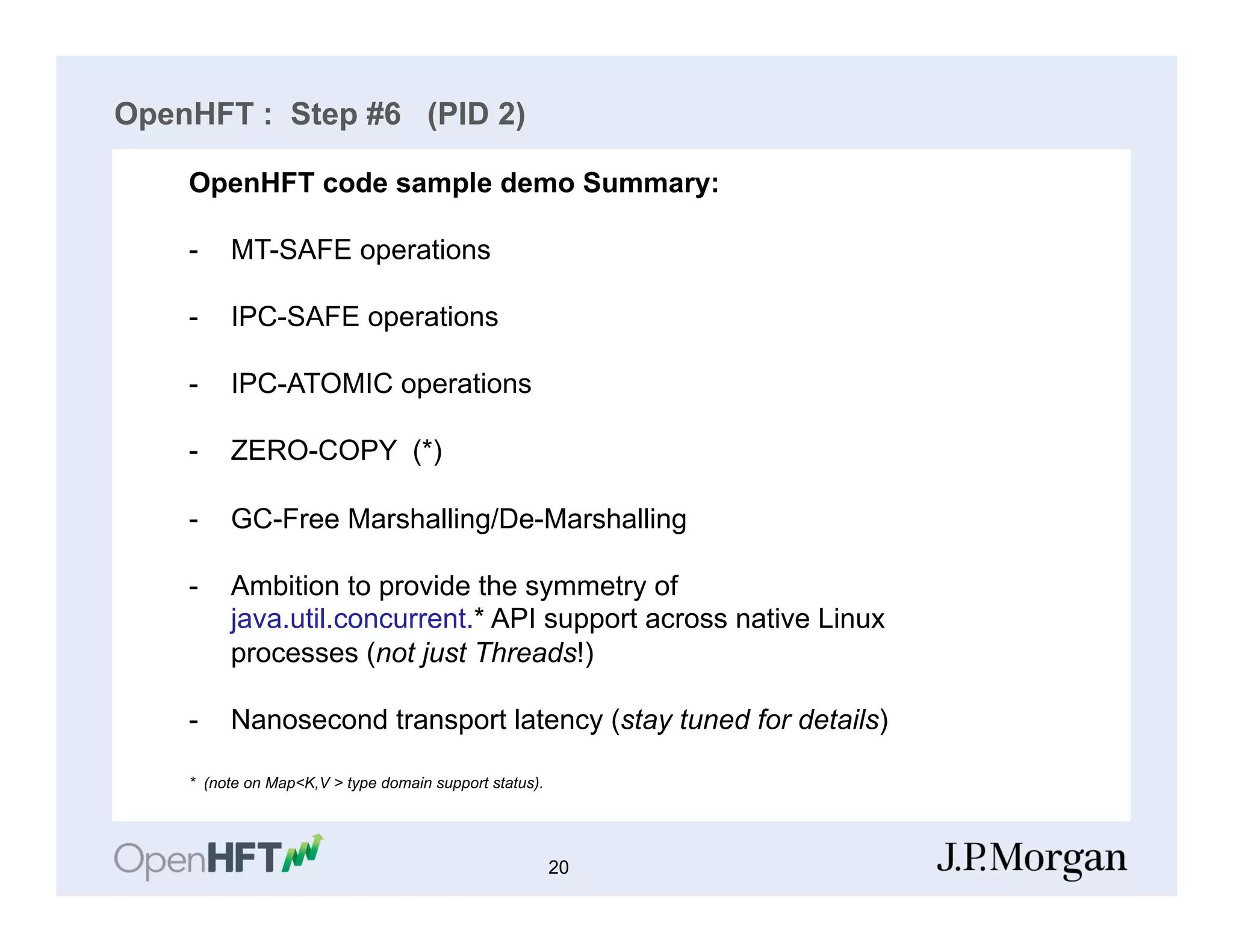

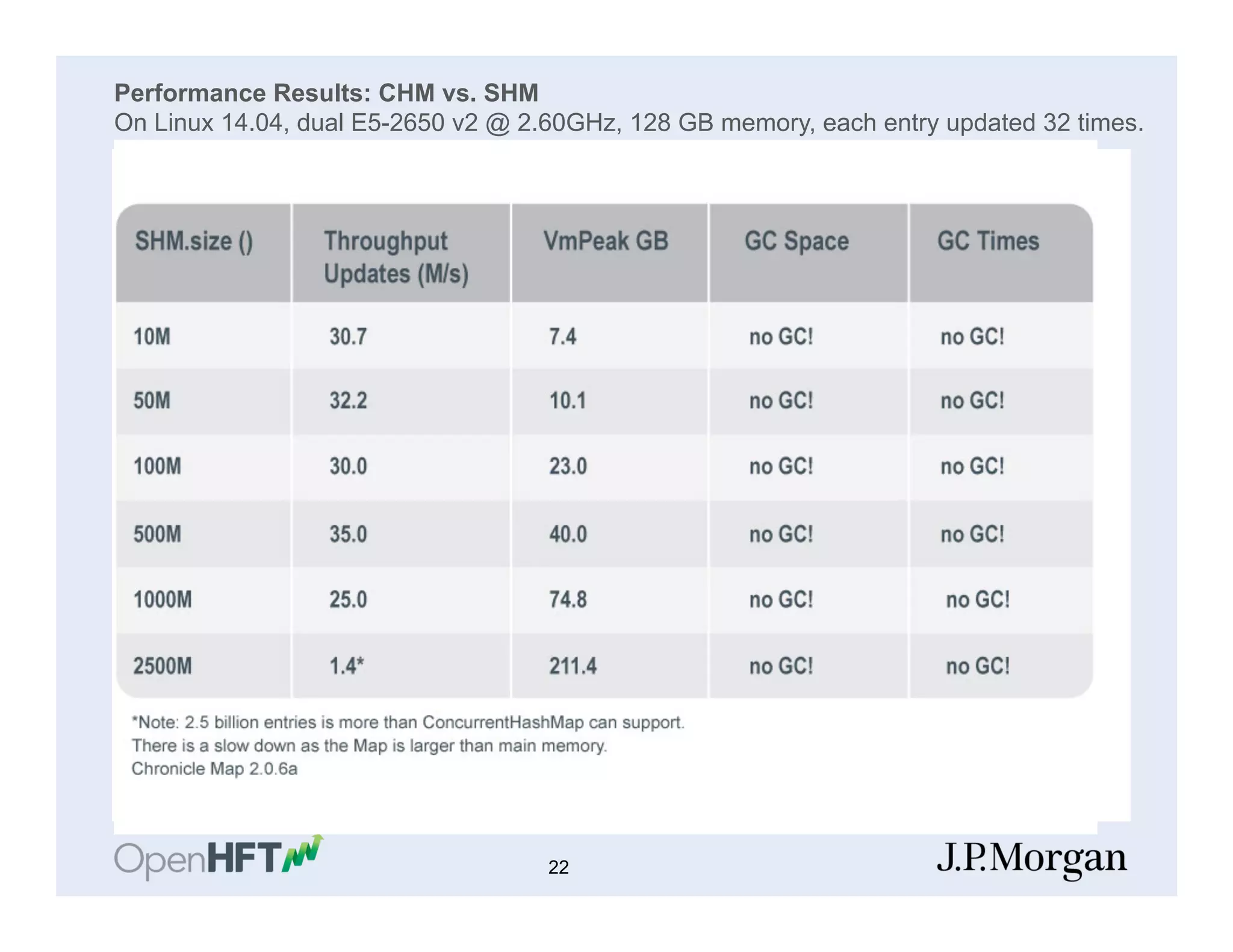
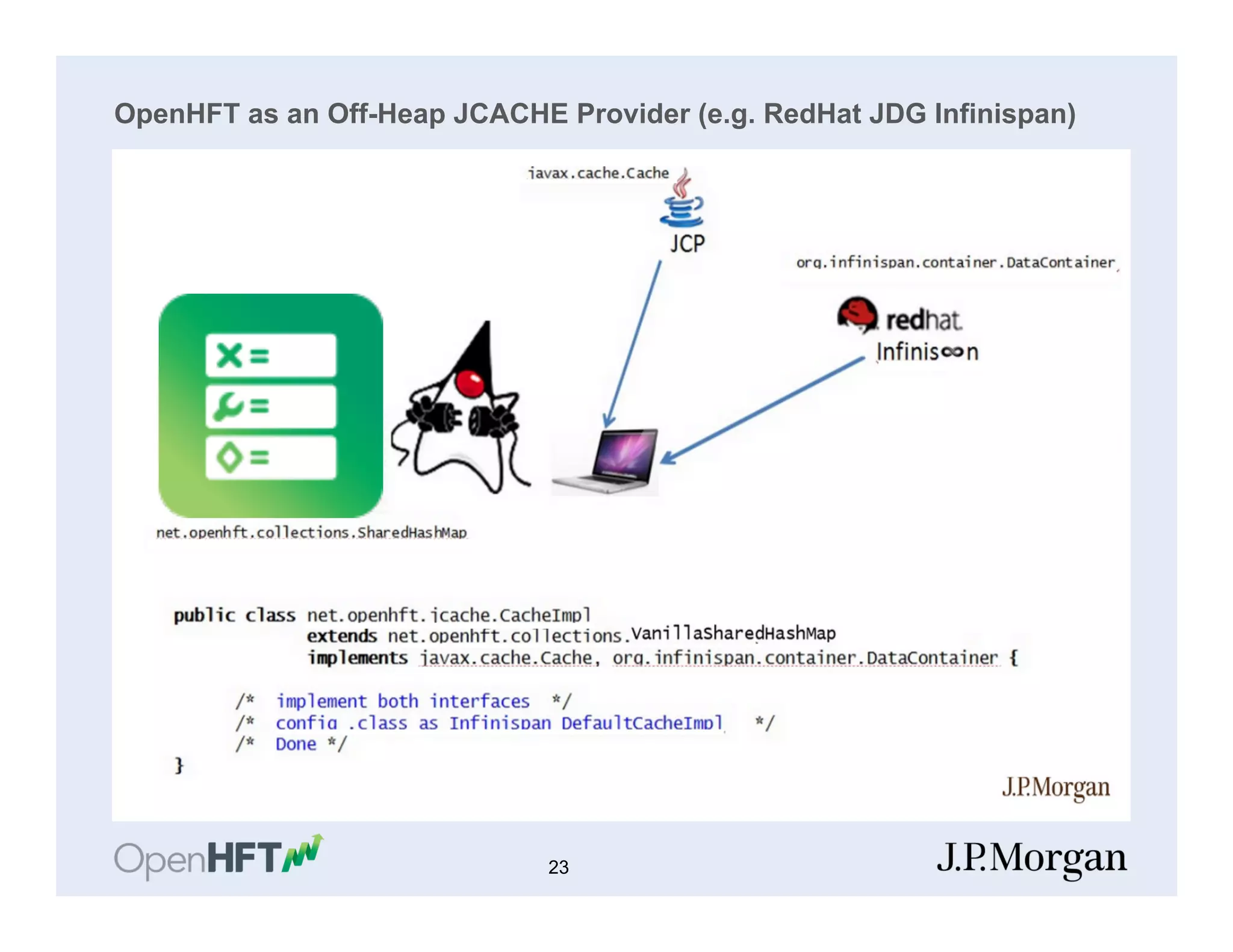
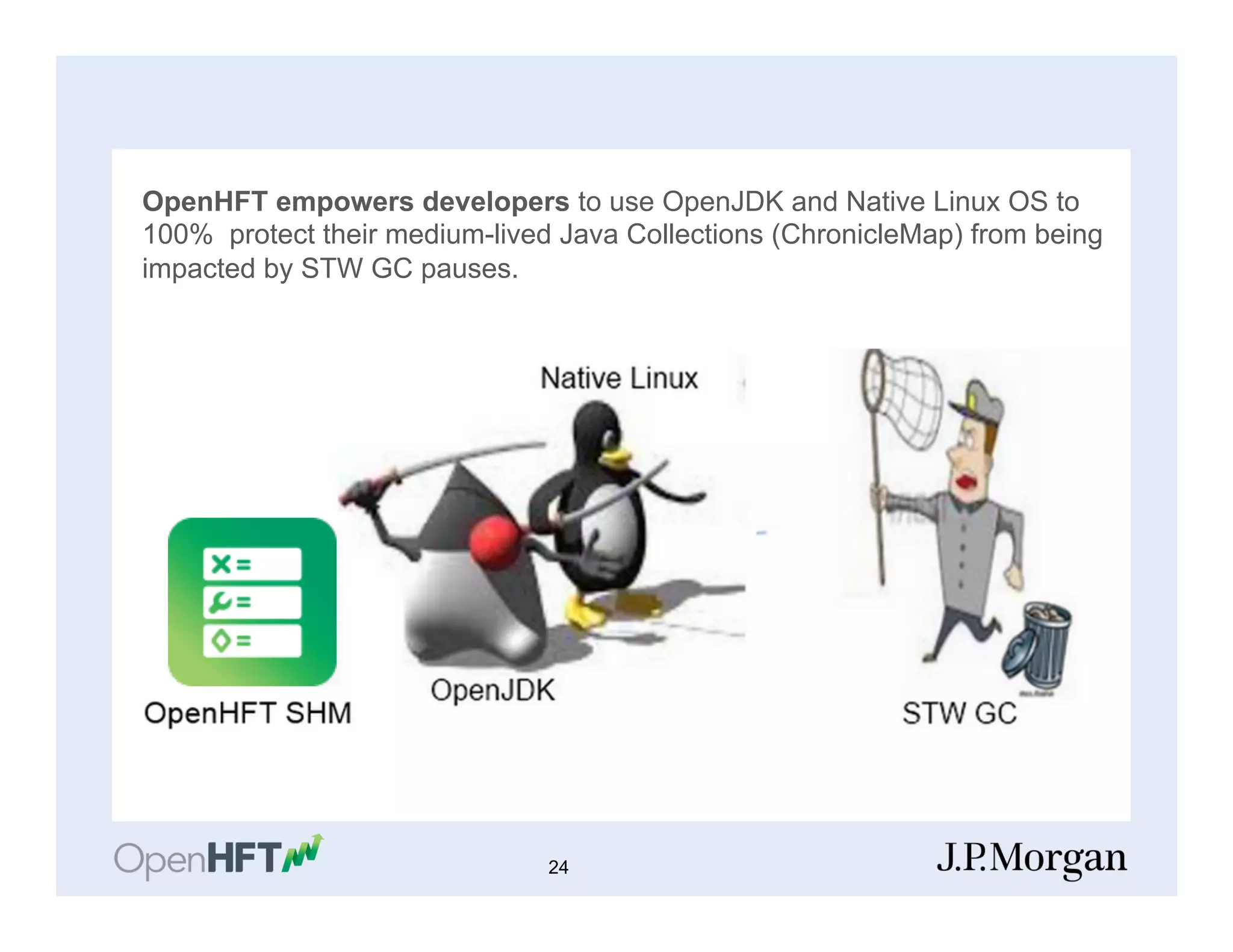
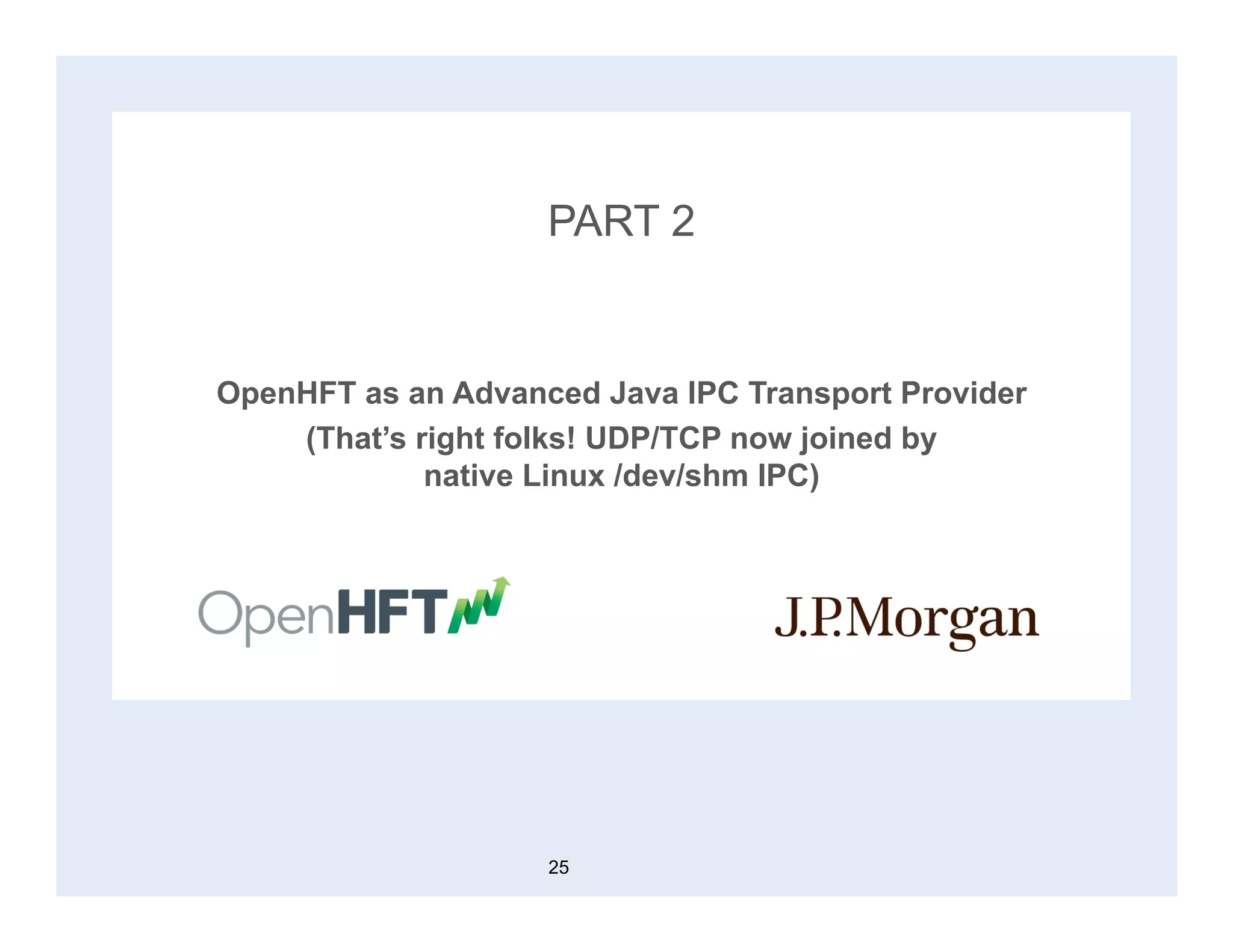
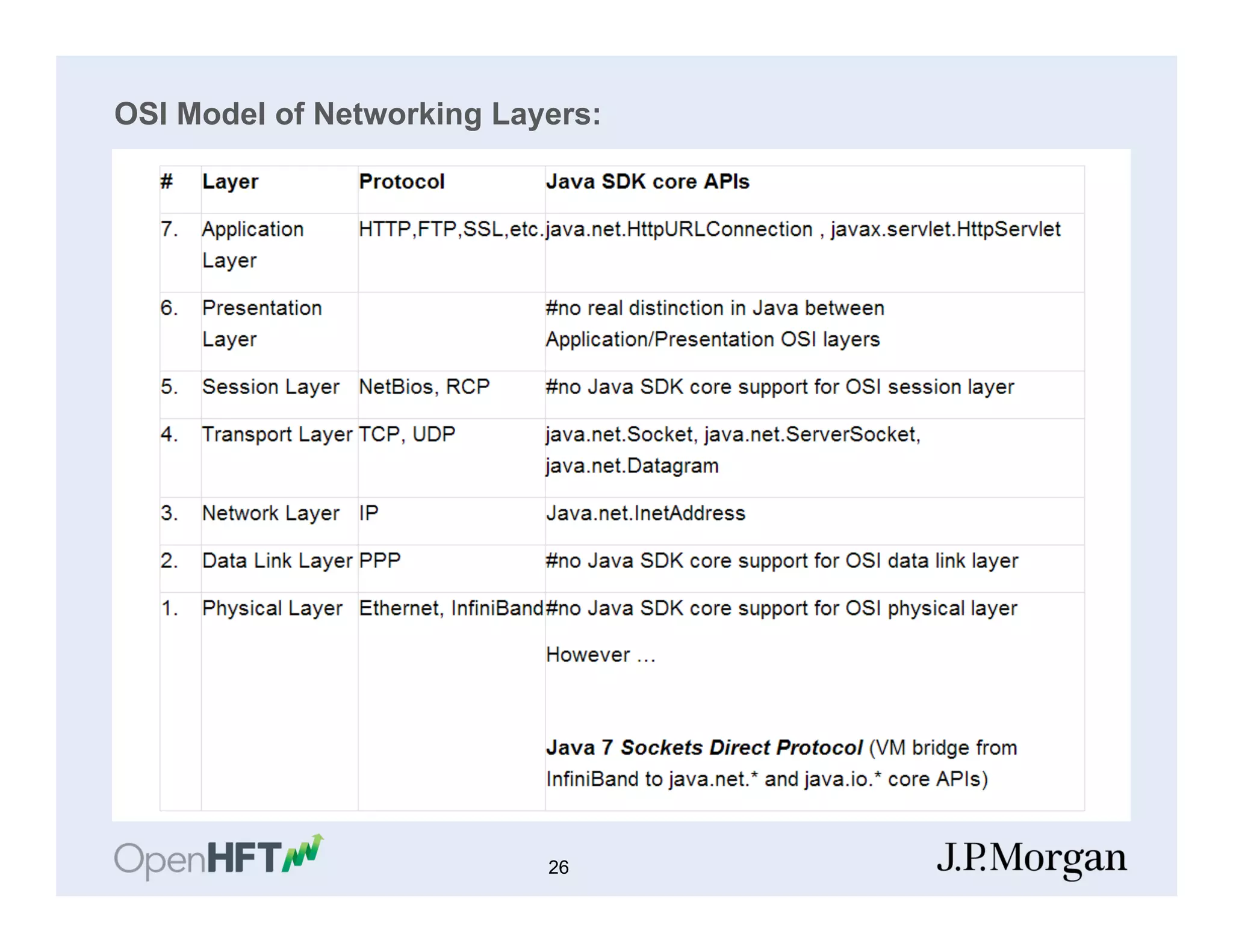
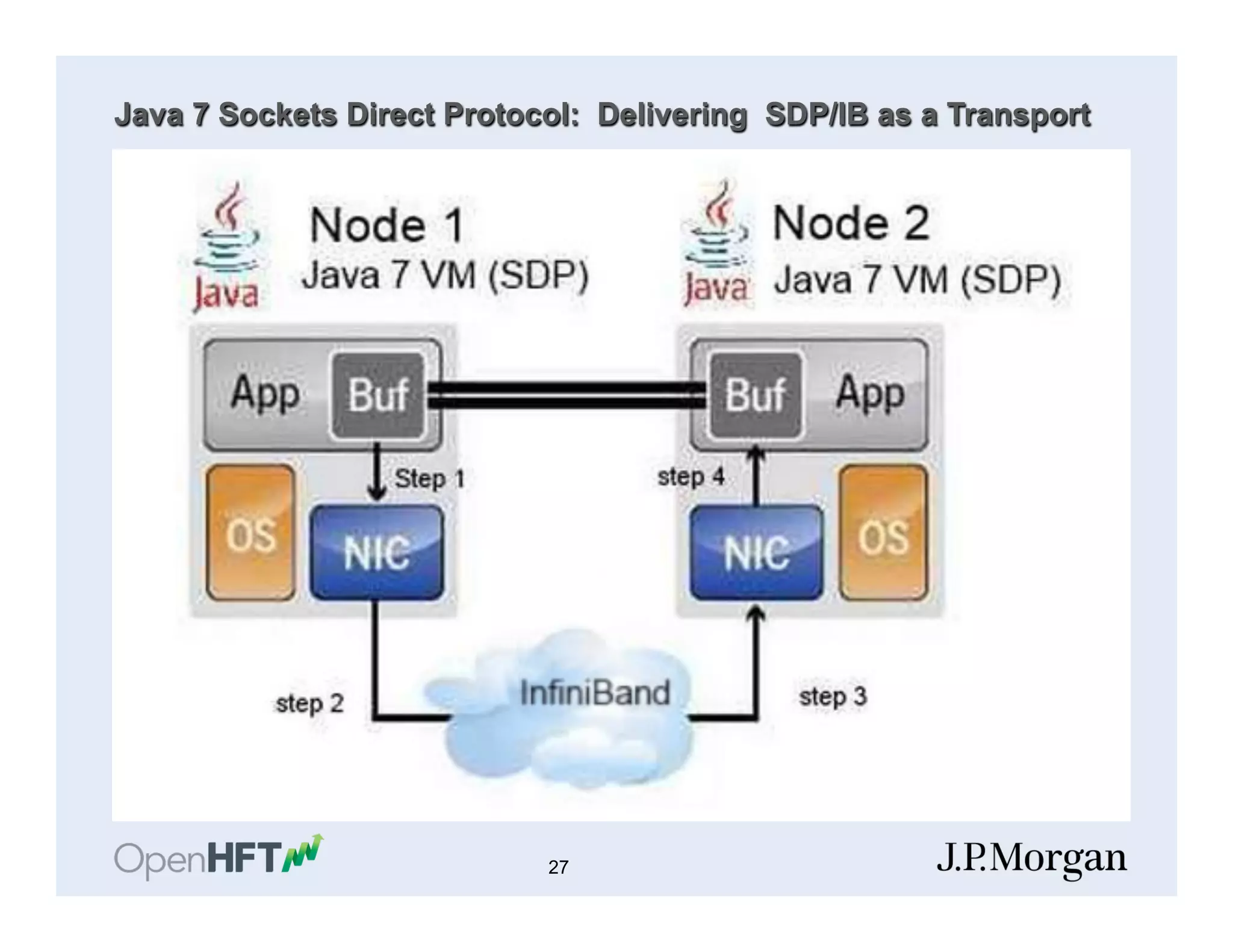
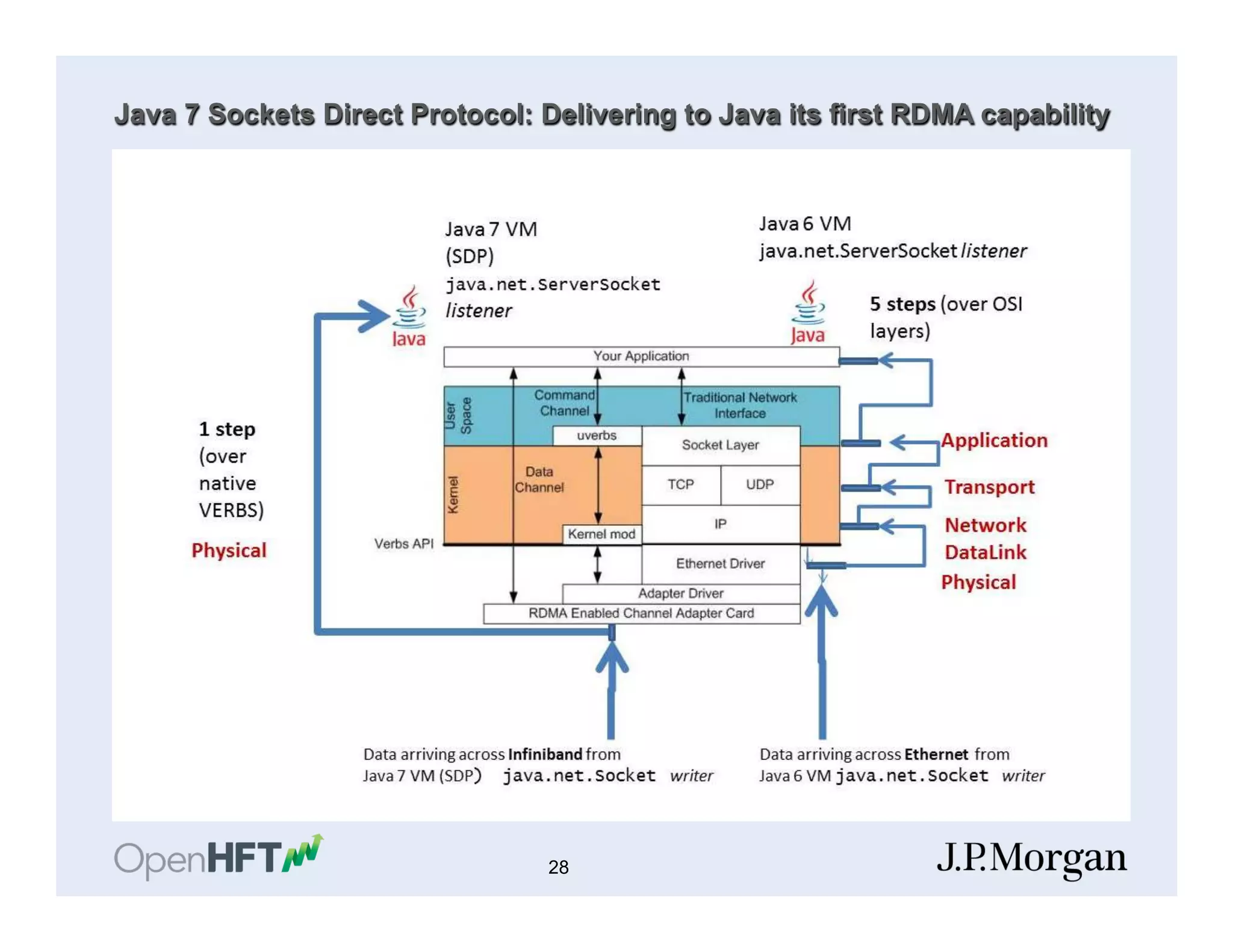
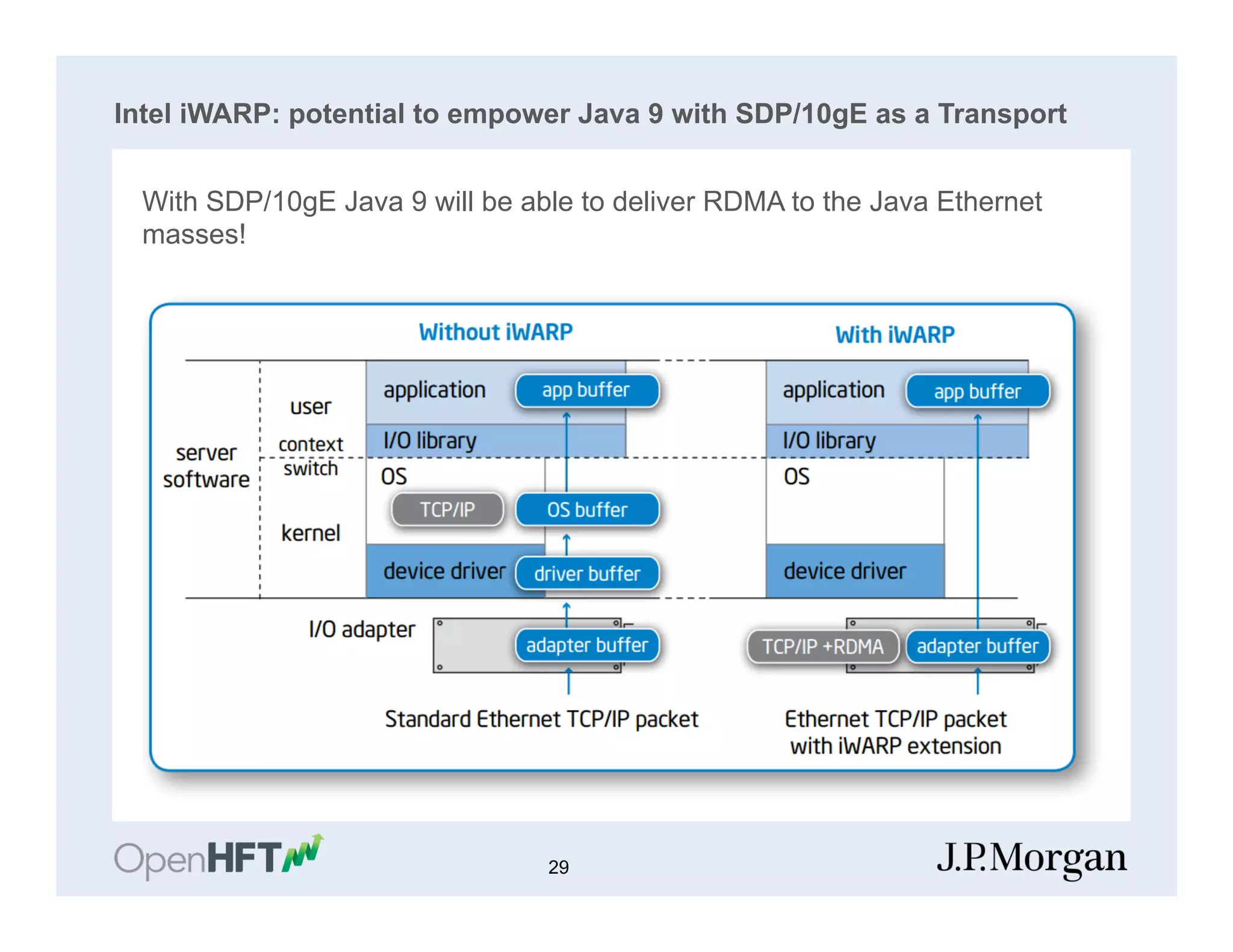
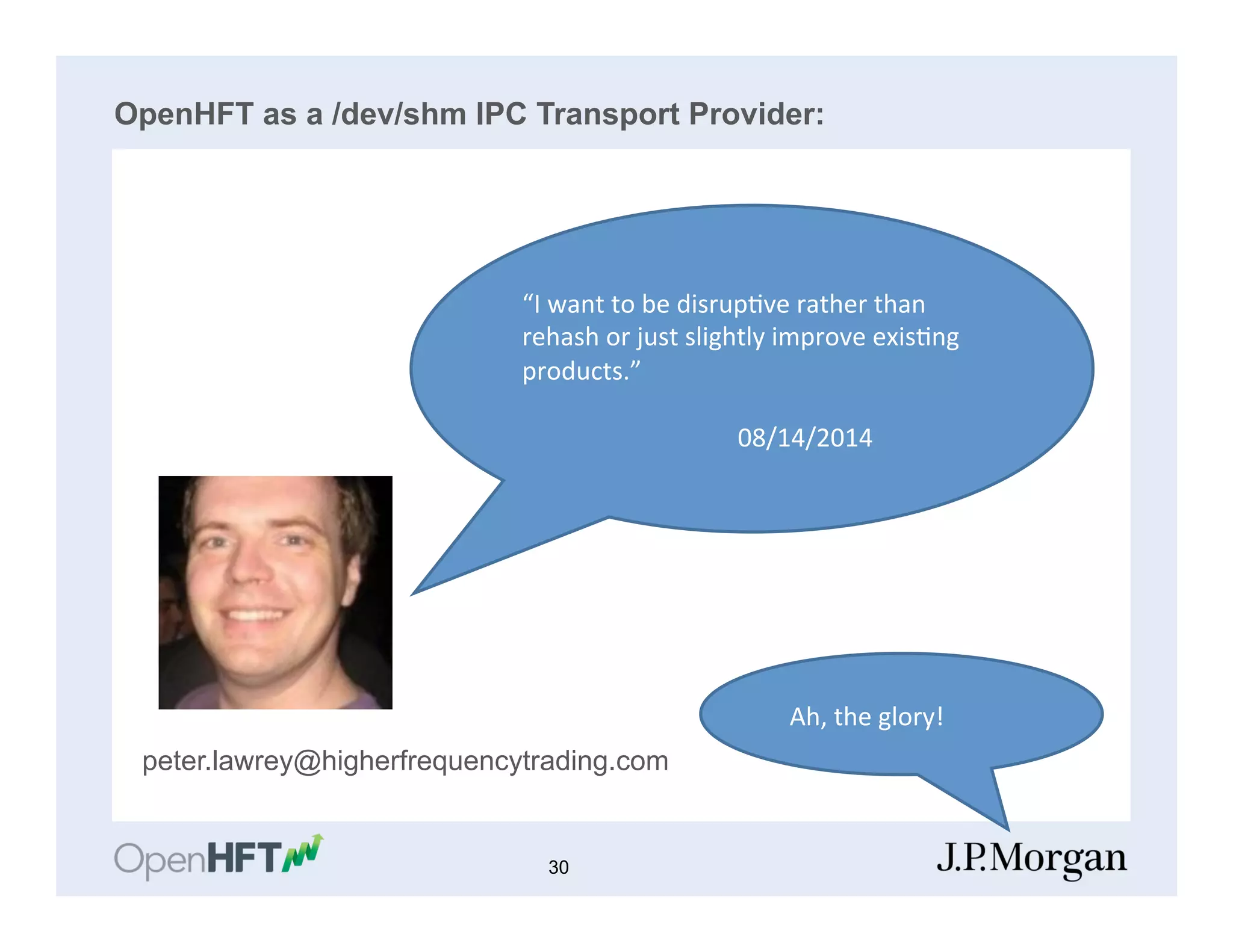
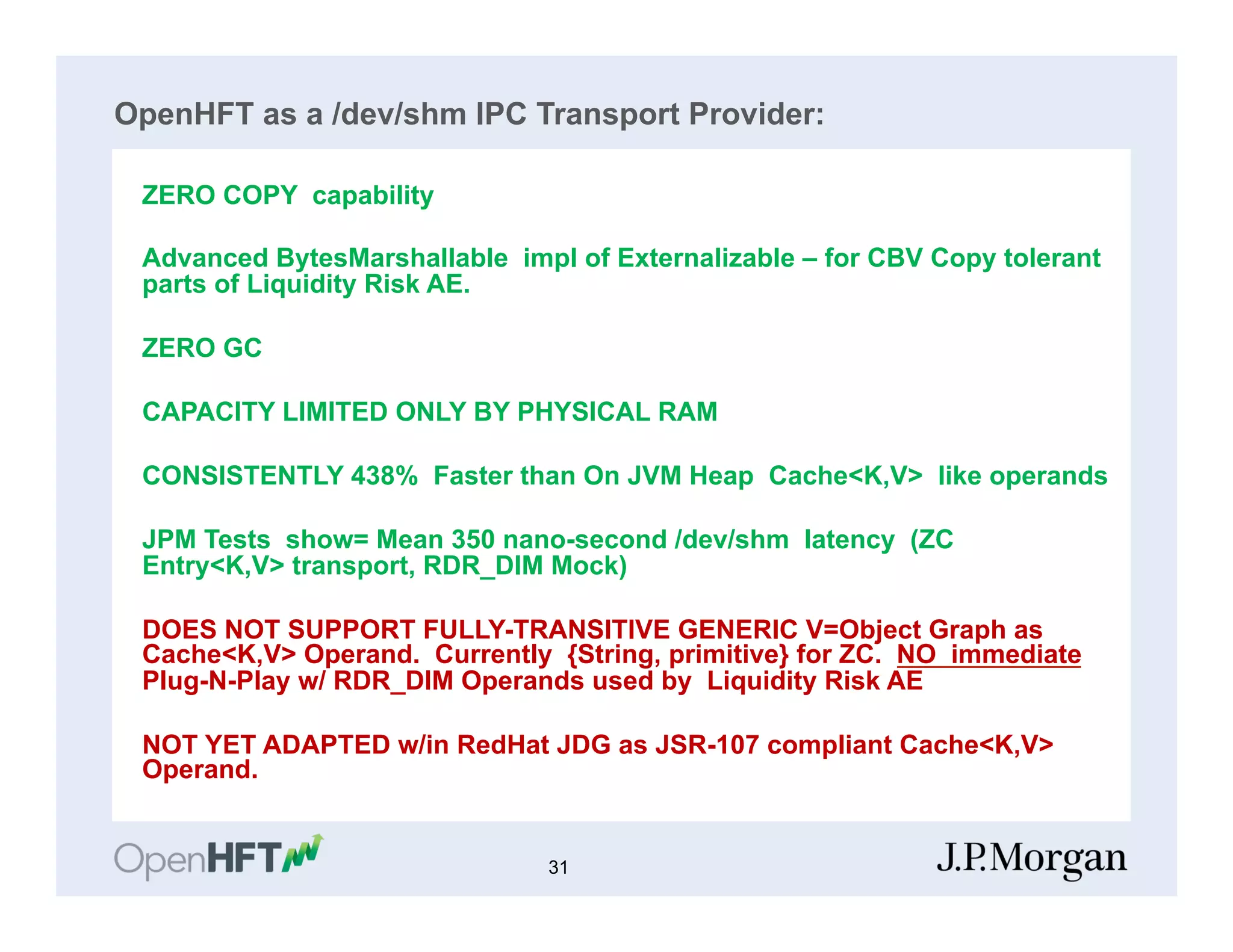
![PROOF IS IN THE TEST RESULTS: What do we get using OpenHFT vs.
RedHat JDG?
OpenHFT /dev/shm/SharedHashMap<K,V> as operand provider:
To try , run the following command in 2 separated terminals ( (rm /dev/shm/*) Left
player must be started first!):
java
org.junit.runner.JUnitCore
net.openhft.collections.fromdocs.com.jpmorgan.pingpong_latency.PingPongPlayerLeft
java
org.junit.runner.JUnitCore
net.openhft.collections.fromdocs.com.jpmorgan.pingpong_latency.PingPongPlayerRight
32424: 1 x _bondEntryV.getCoupon() (last _couponL=[5.00 %]) in 37.0 nanos
32425: 1 x _bondEntryV.getCoupon() (last _couponL=[5.00 %]) in 37.5 nanos
32423: 1 x _bondEntryV.getCoupon() (last _couponR=[4.00 %]) in 37.0 nanos
32424: 1 x _bondEntryV.getCoupon() (last _couponR=[4.00 %]) in 31.0 nanos
Full results at
https://github.com/Cotton-Ben/HugeCollections/tree/master/collections/src/
test/java/net/openhft/collections/fromdocs/com/jpmorgan/pingpong_latency
32](https://image.slidesharecdn.com/ben-peter-sarah-updatedhazelcast-2015-jan-27pres-150205022325-conversion-gate01/75/Shared-Memory-Performance-Beyond-TCP-IP-with-Ben-Cotton-JPMorgan-32-2048.jpg)
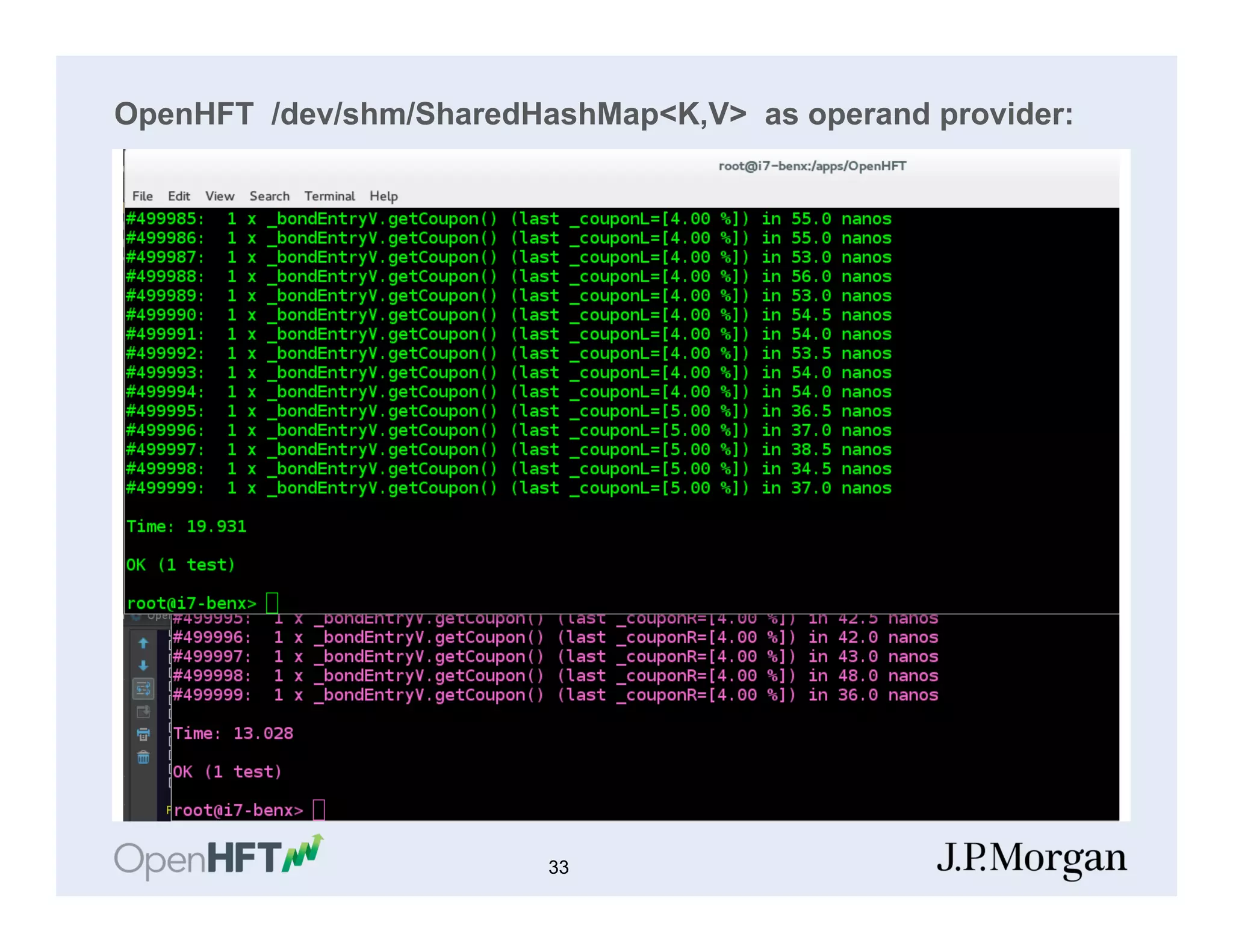
![PROOF IS IN THE TEST RESULTS: What do we get using OpenHFT vs.
RedHat JDG?
RedHat JDG and JCACHE<K,V> as operand provider:
To try with a distributed cache, run the following command in separated terminals:
java
-cp "target/classes:target/dependency/*“
org.infinispan.quickstart.clusteredcache.Node
-d LEFT
java
-cp "target/classes:target/dependency/*“
org.infinispan.quickstart.clusteredcache.Node
-d RIGHT
counter=[217924] cache.put('369604103',3.000%); took 92,599 nanos
counter=[217925] cache.put('369604103',6.000%); took 90,062 nanos
counter=[42529] fl=[5%] = cache.get('369604103'); took 52,624 nanos
counter=[42530] fl=[6%] = cache.get('369604103'); took 47,981 nanos
( full results at
https://github.com/Cotton-Ben/infinispan-quickstart/tree/master/clustered-
cache )
34](https://image.slidesharecdn.com/ben-peter-sarah-updatedhazelcast-2015-jan-27pres-150205022325-conversion-gate01/75/Shared-Memory-Performance-Beyond-TCP-IP-with-Ben-Cotton-JPMorgan-34-2048.jpg)
